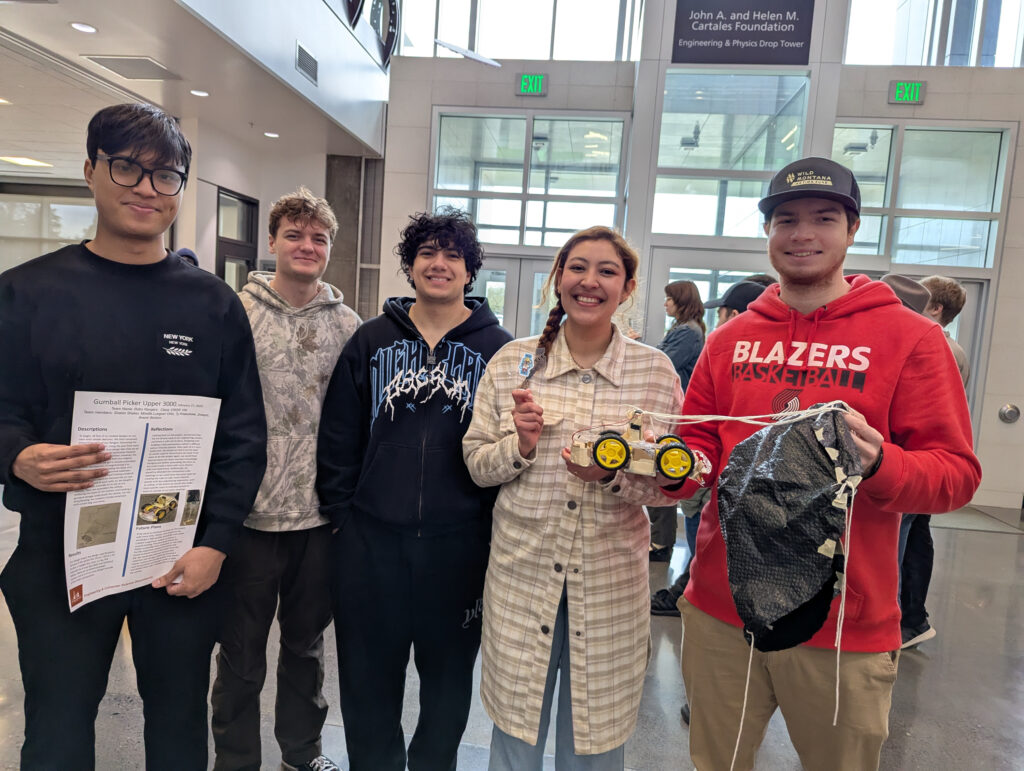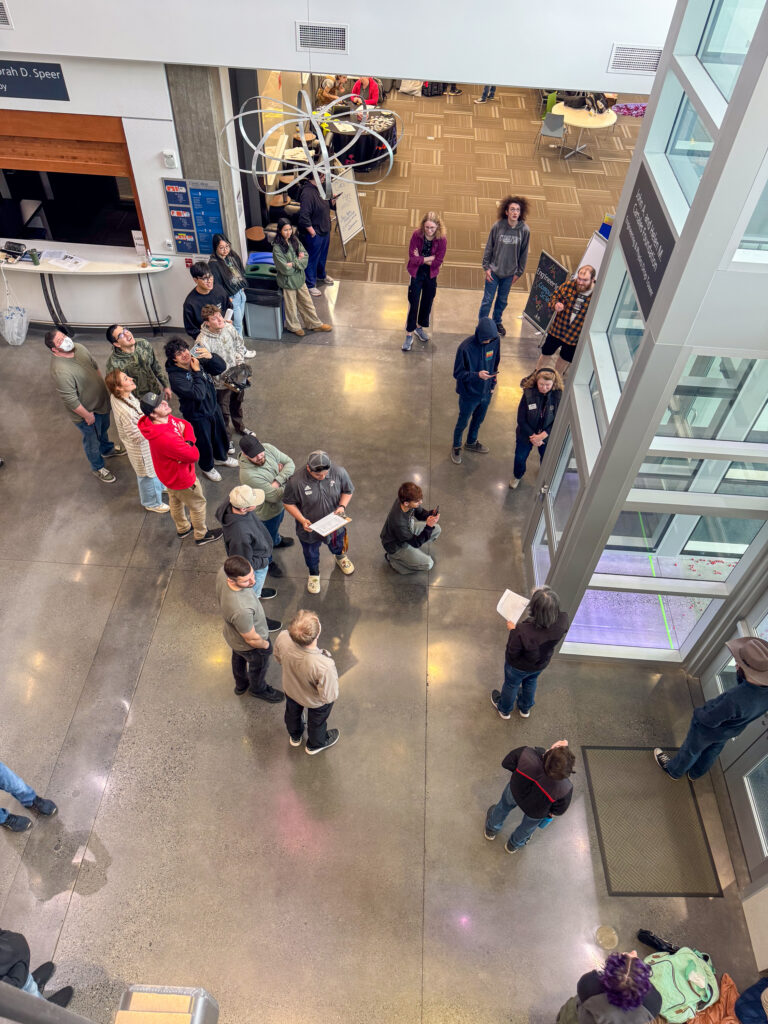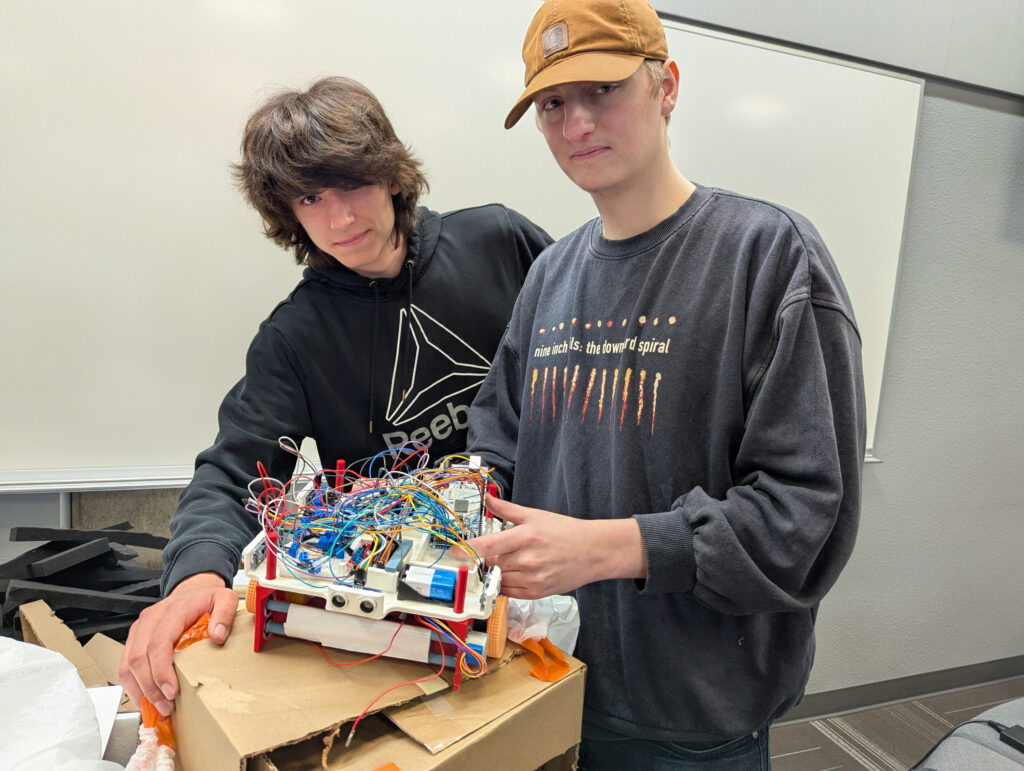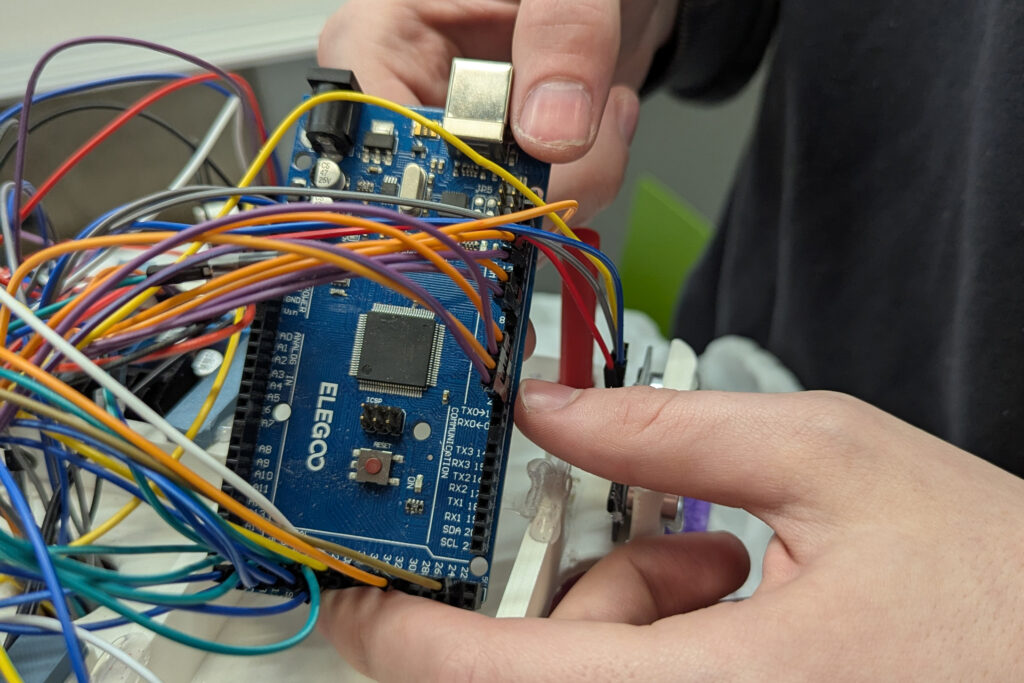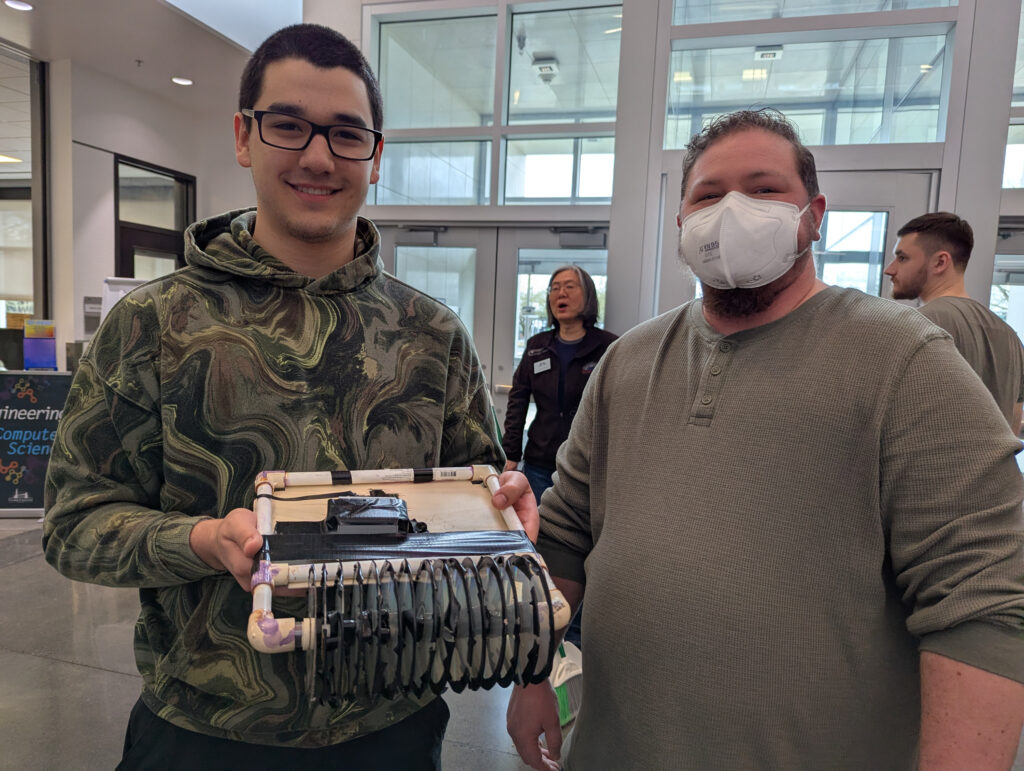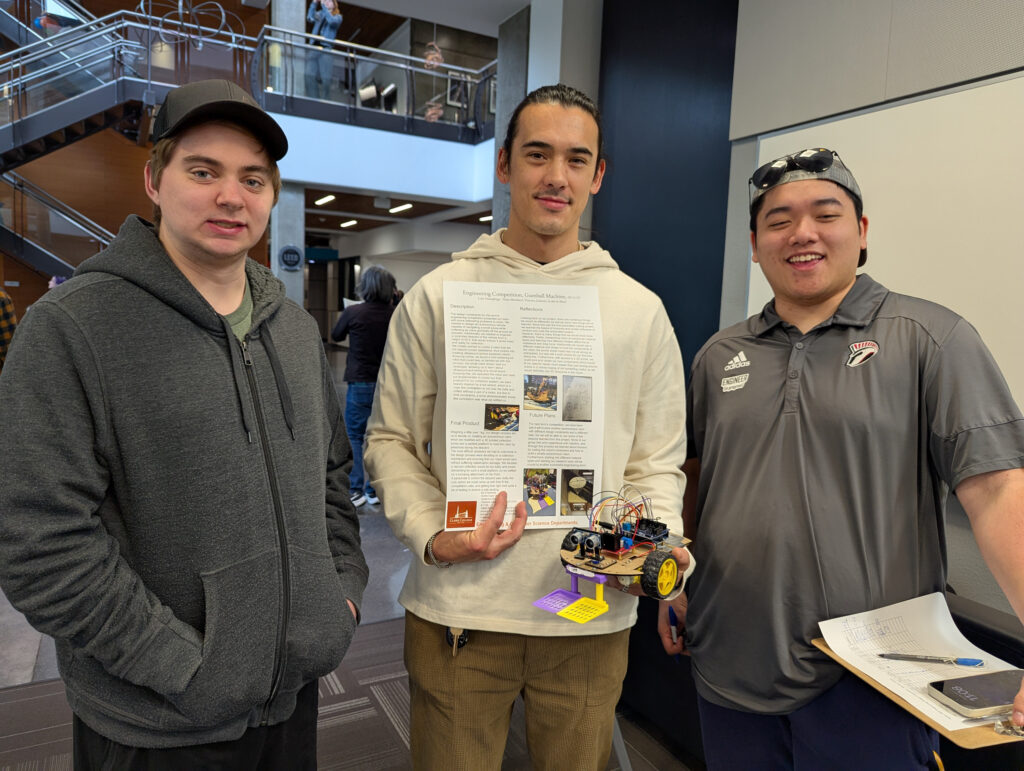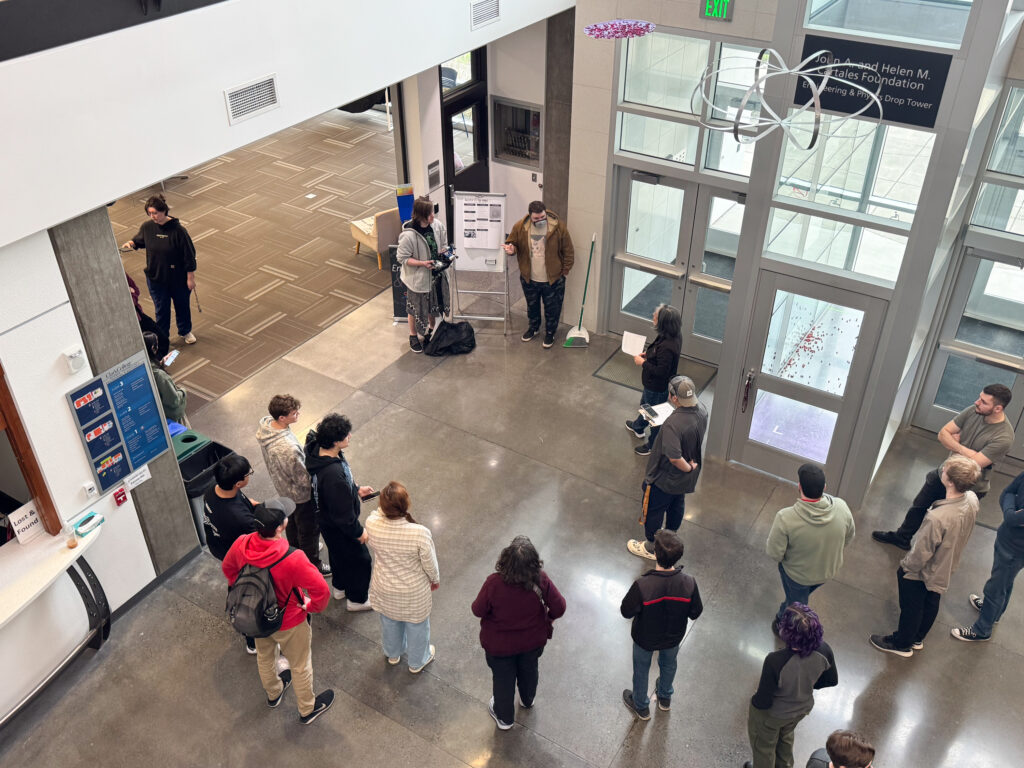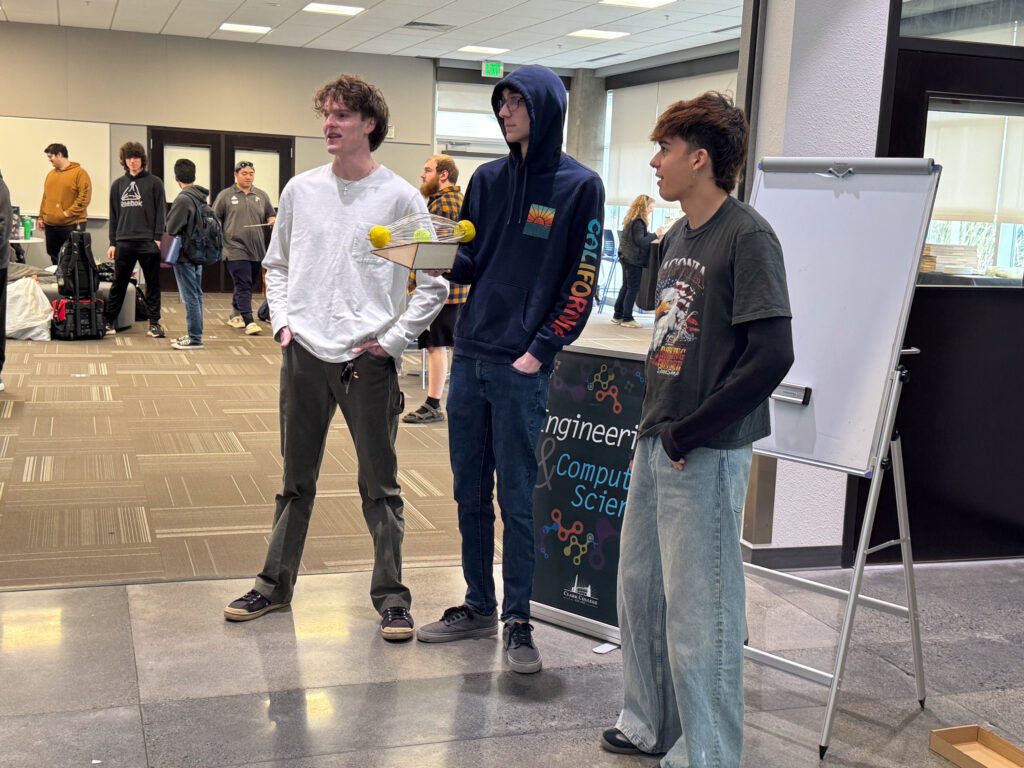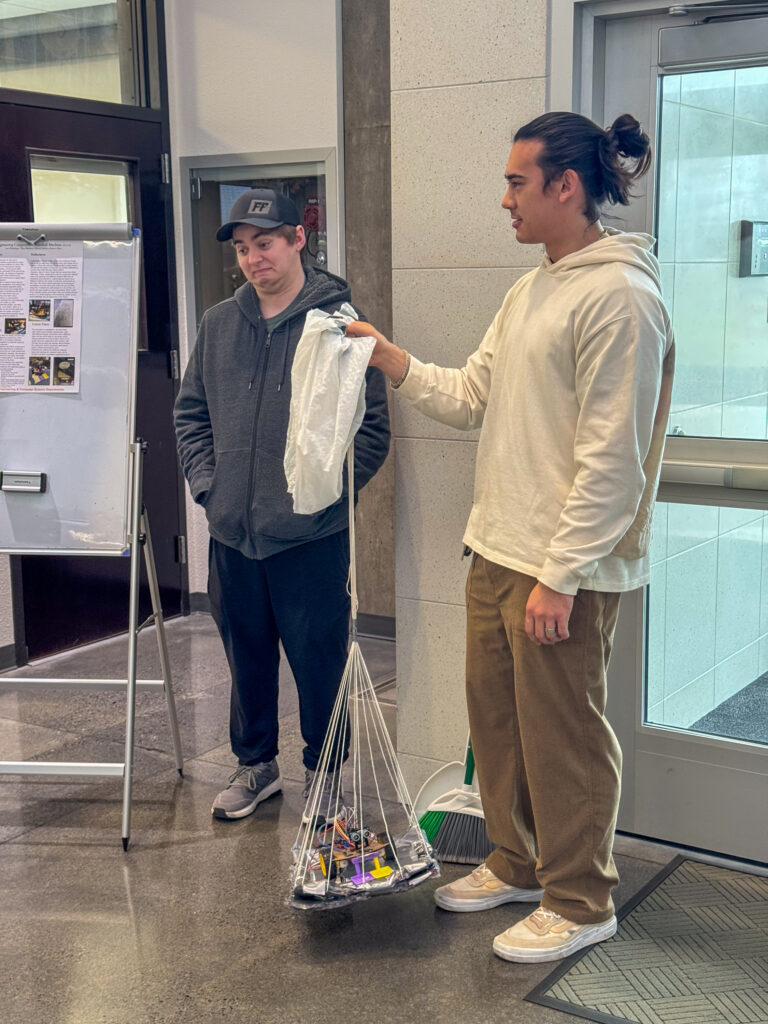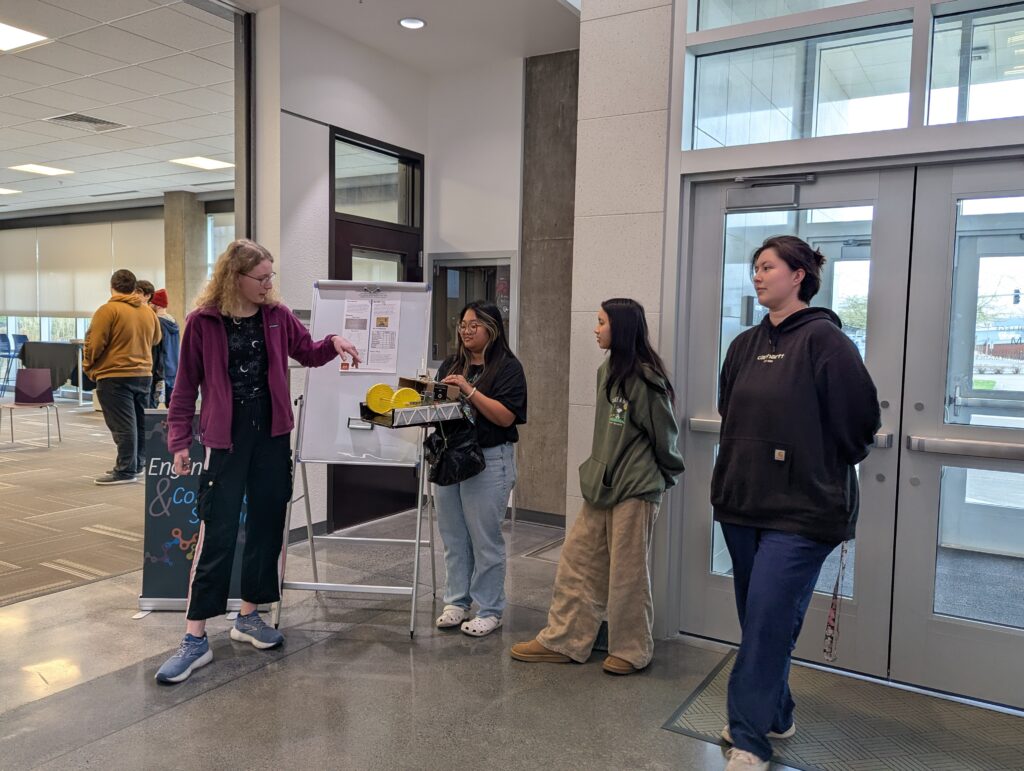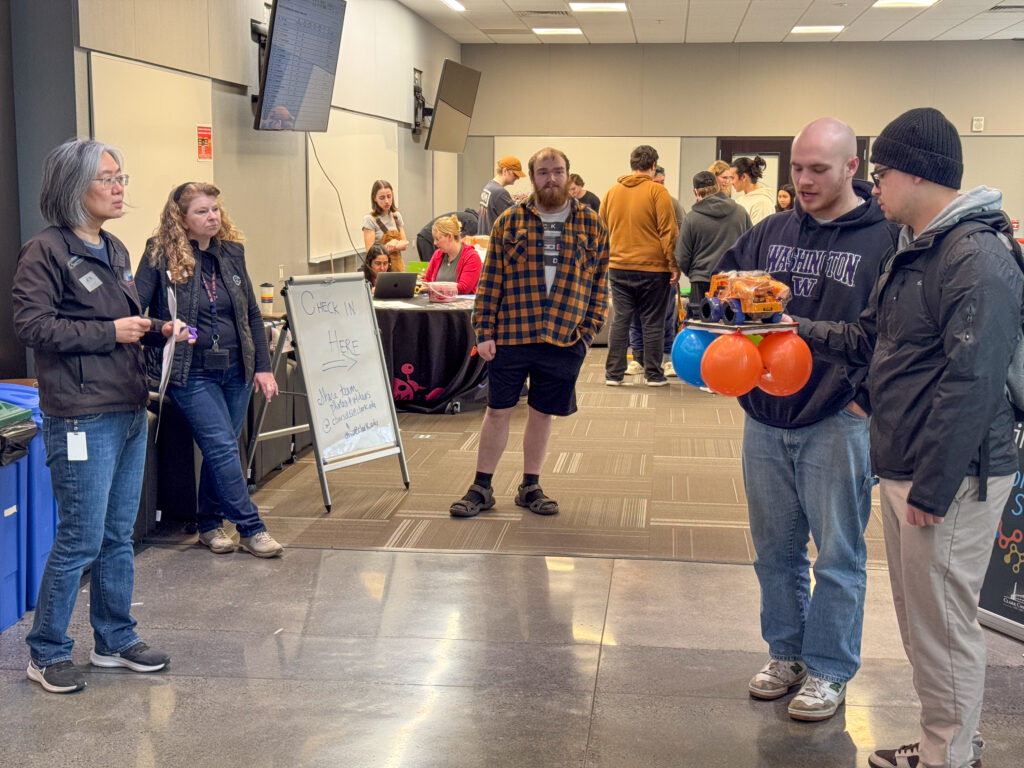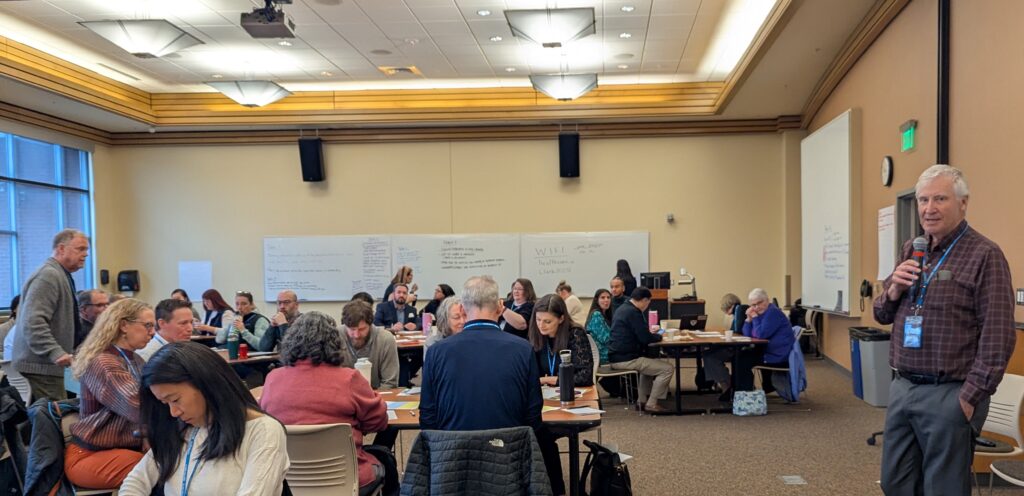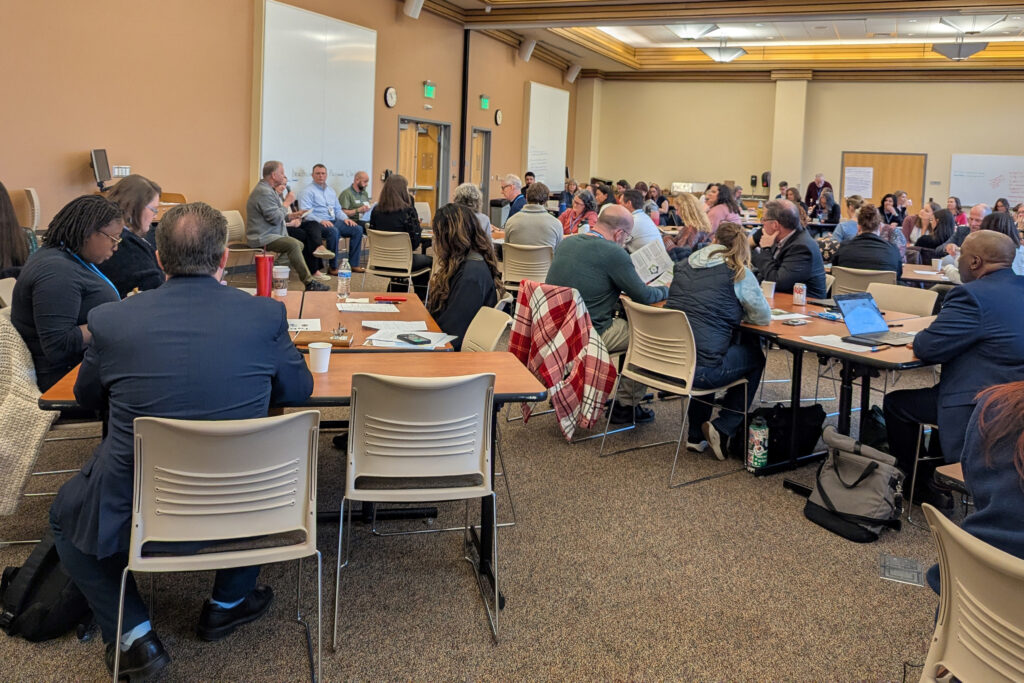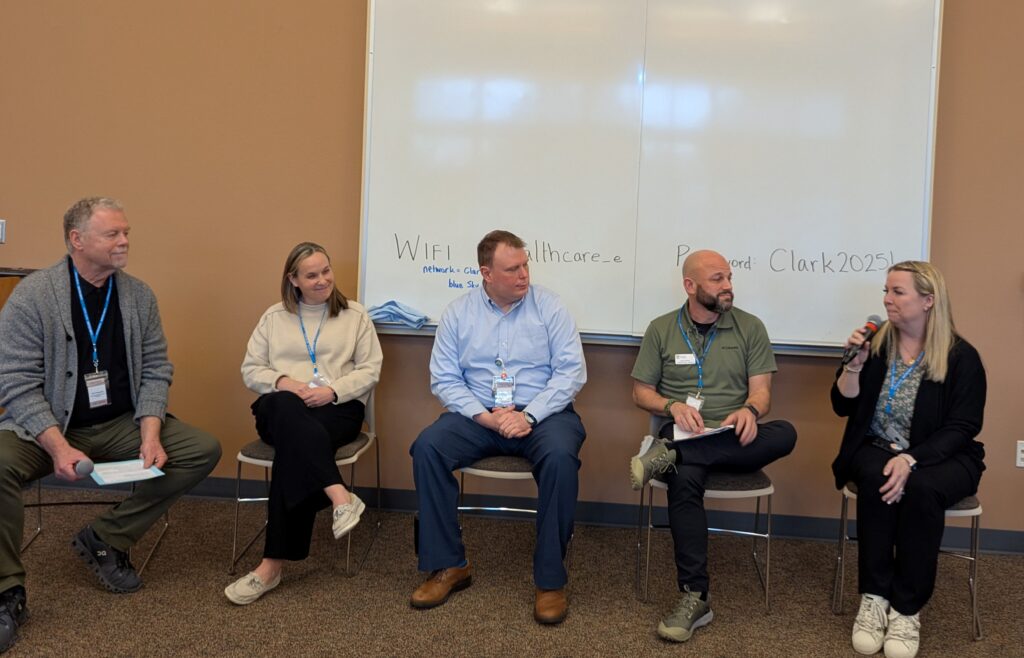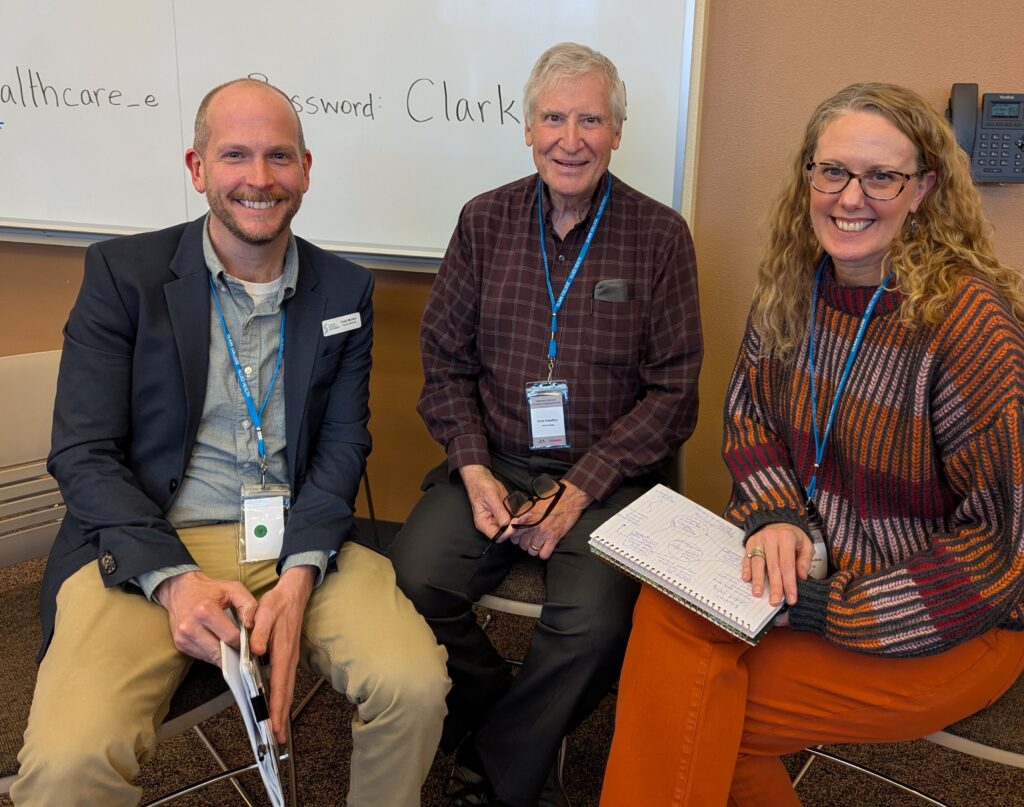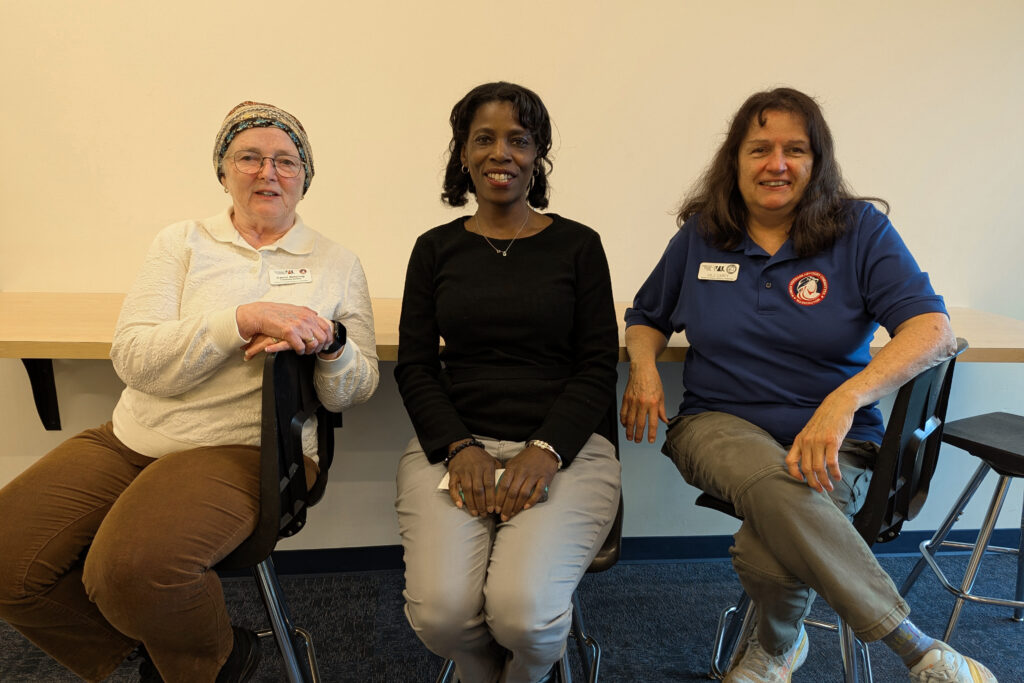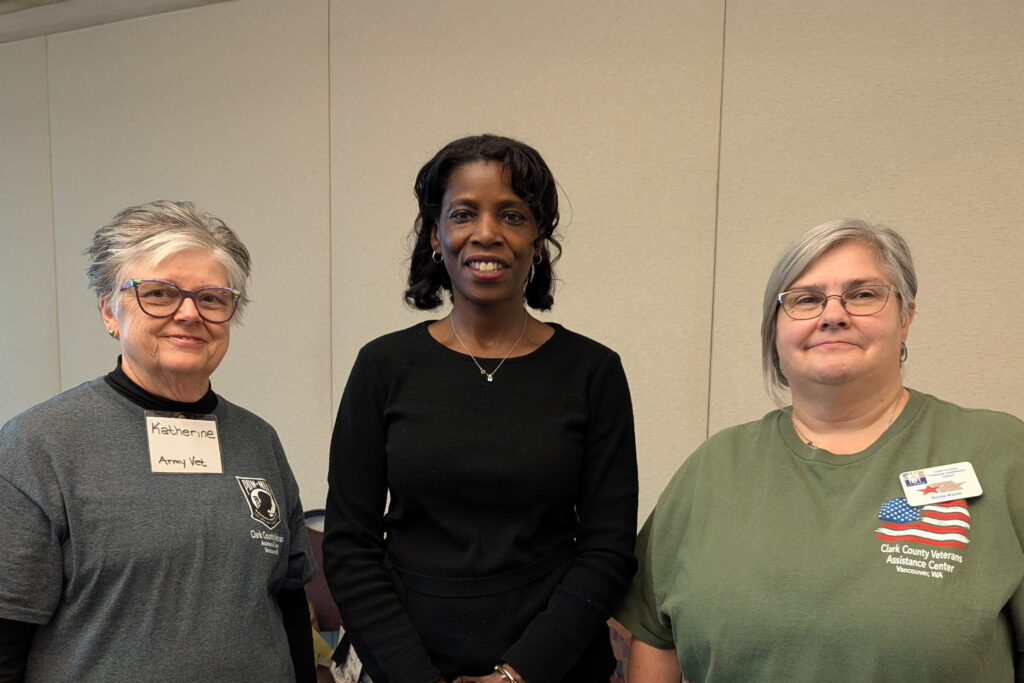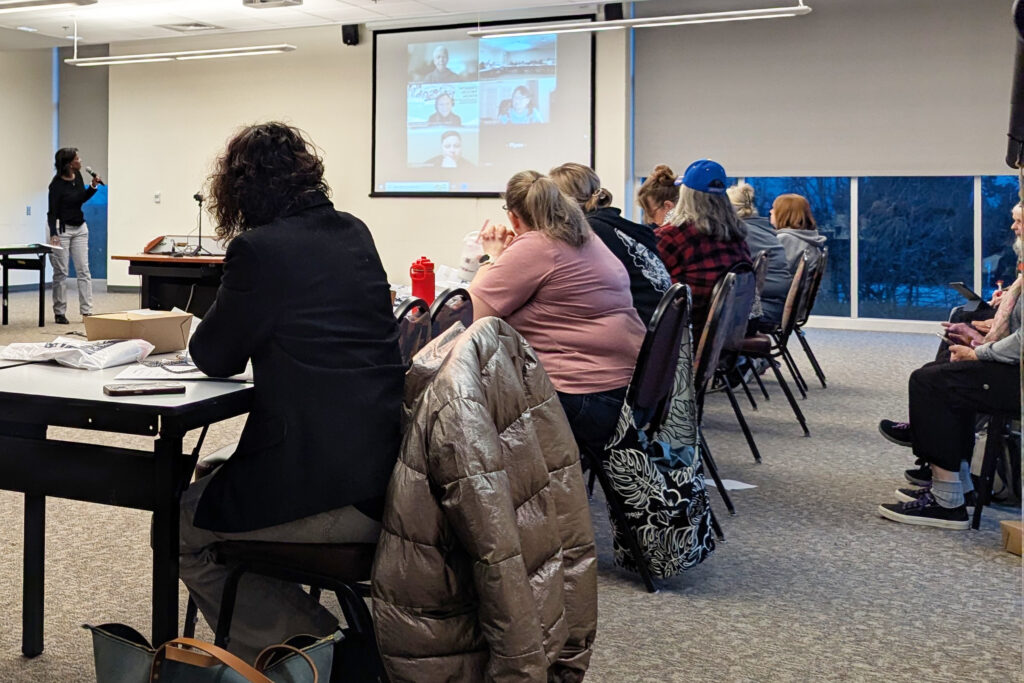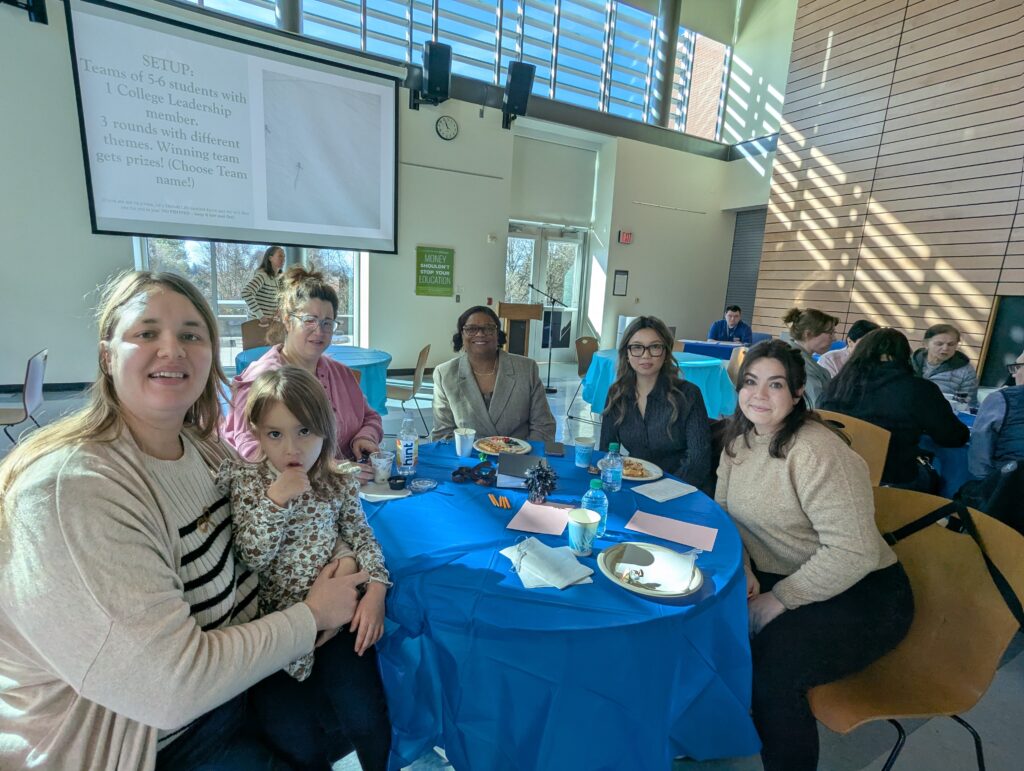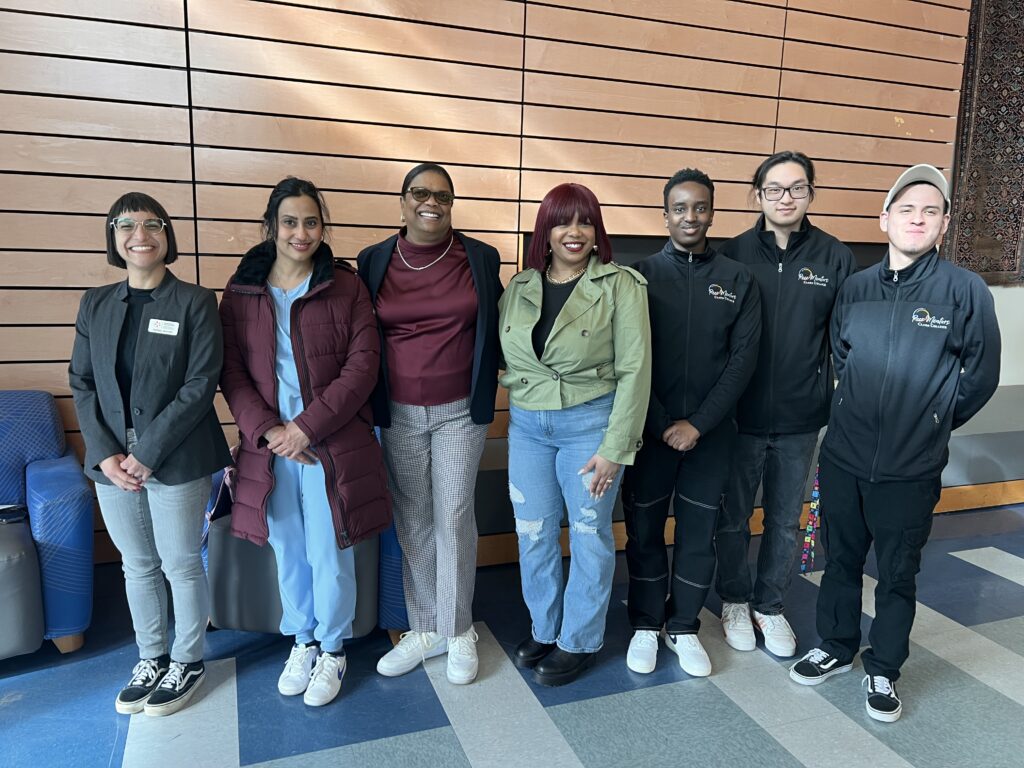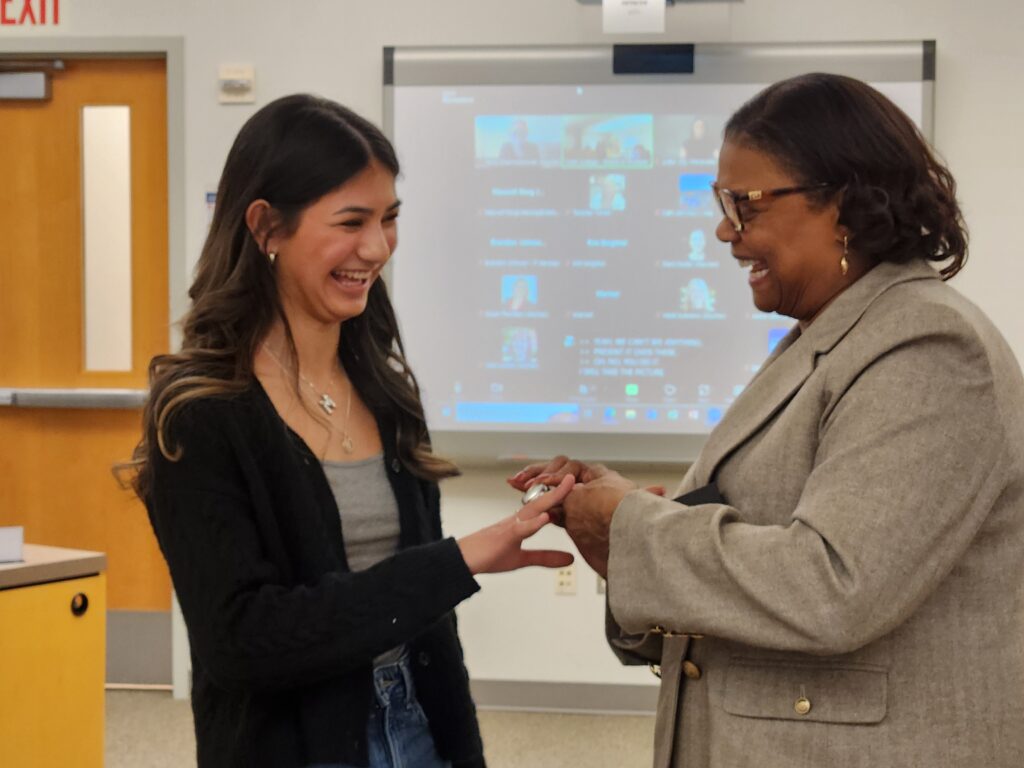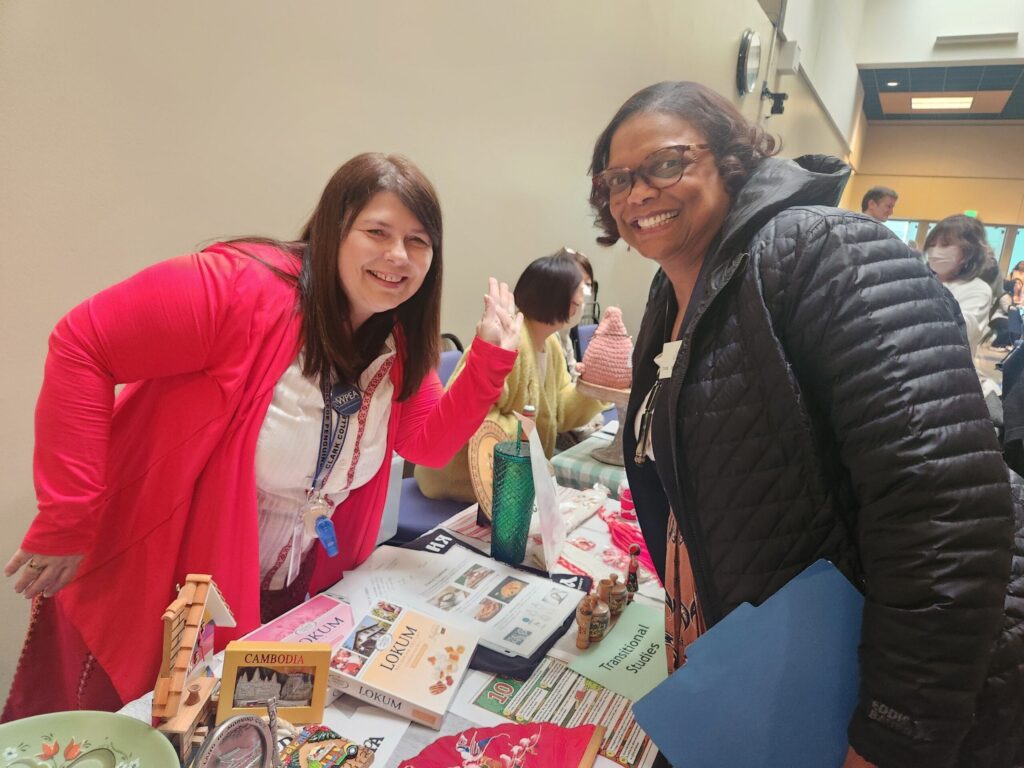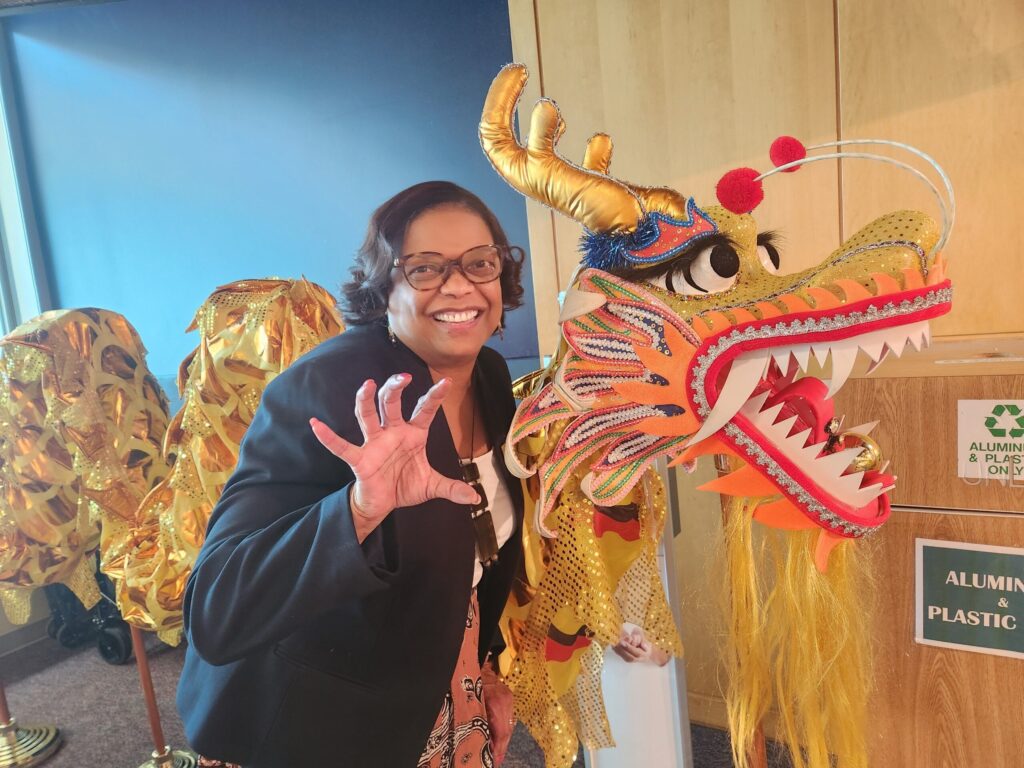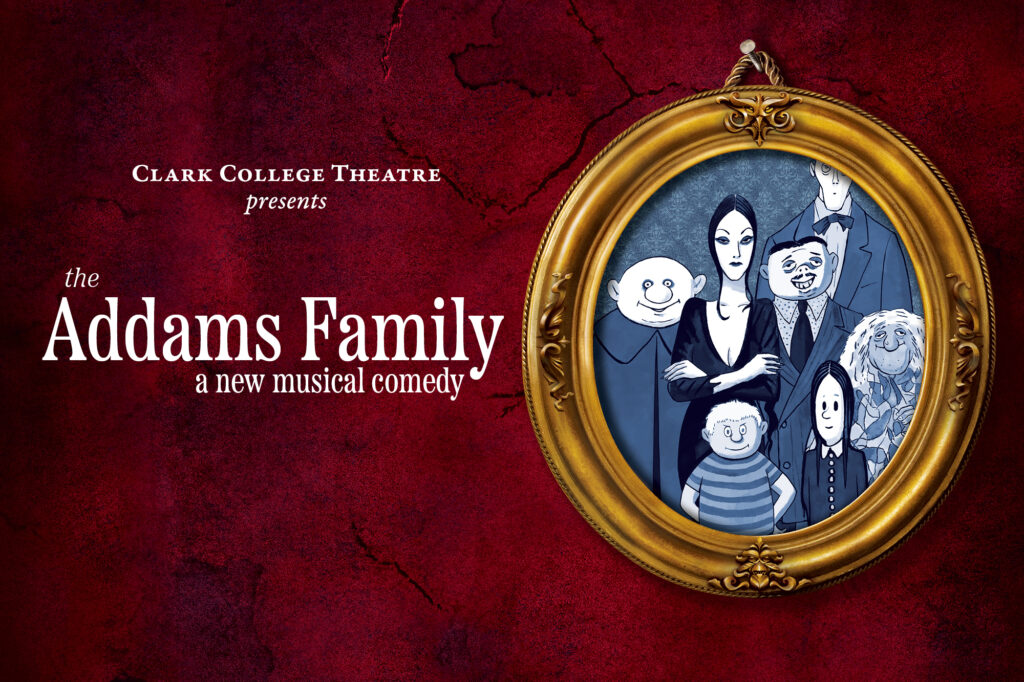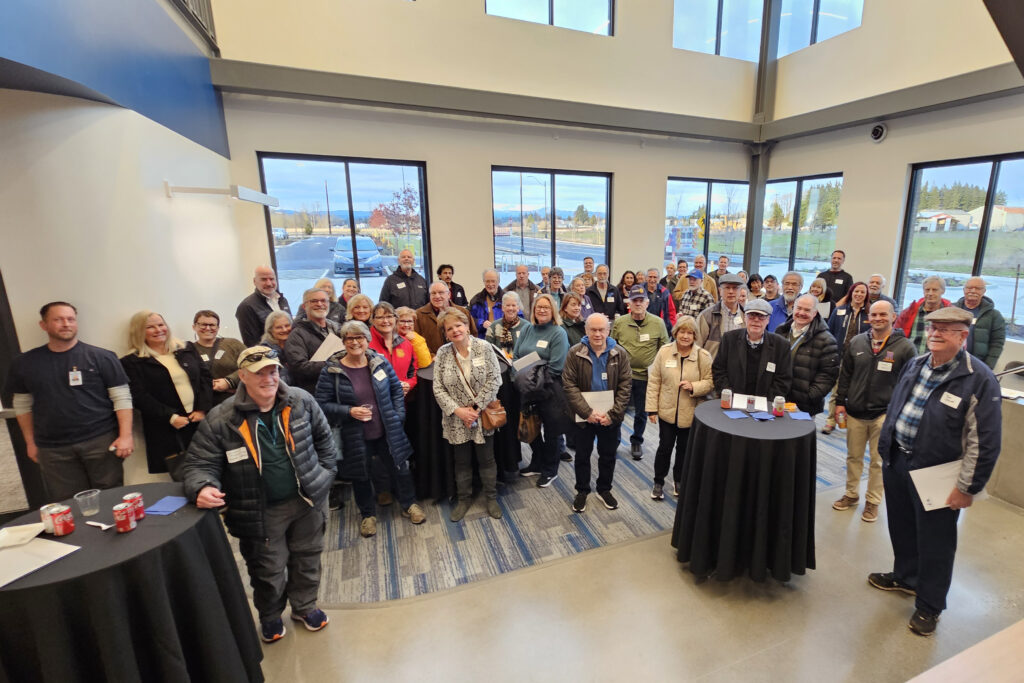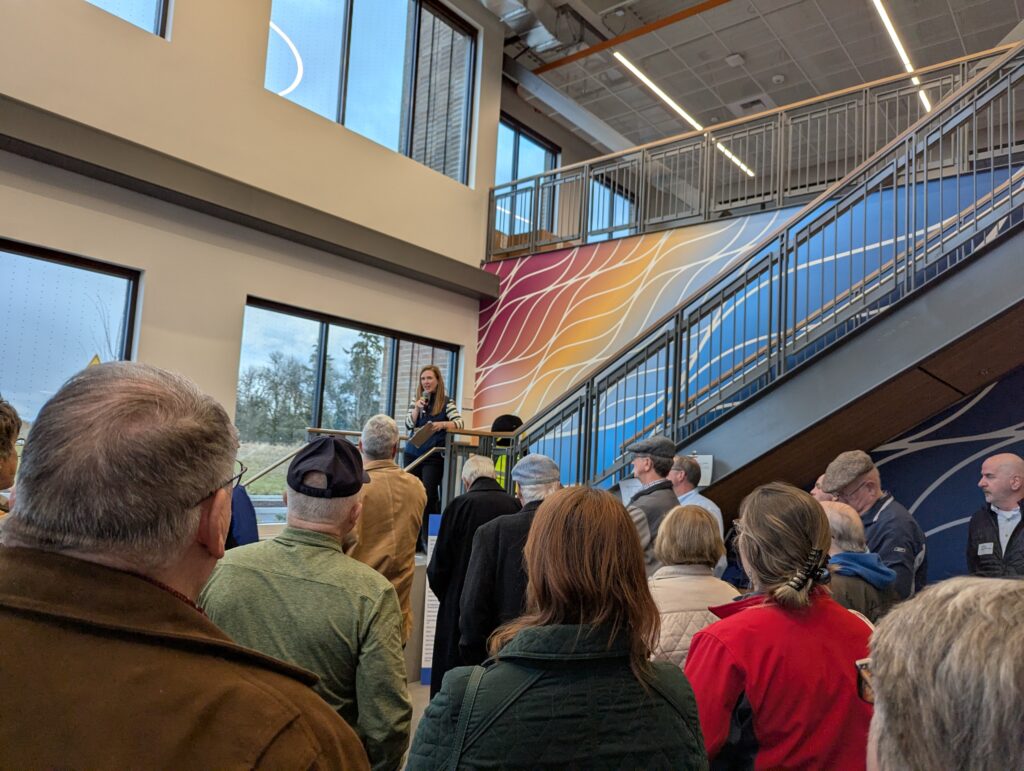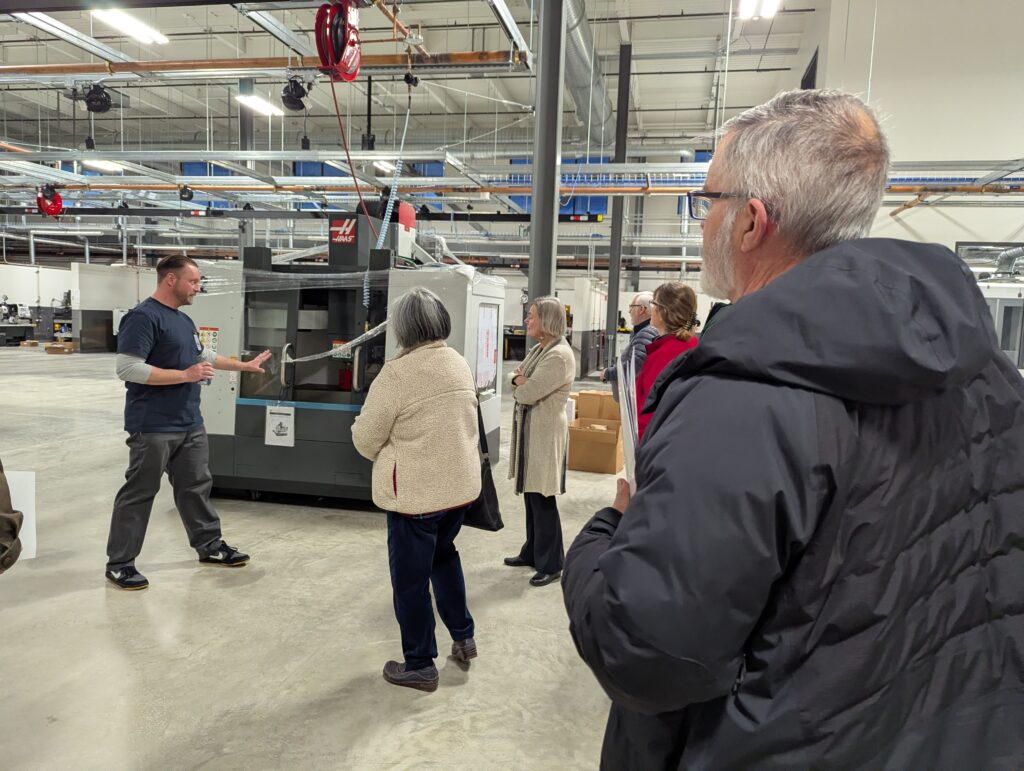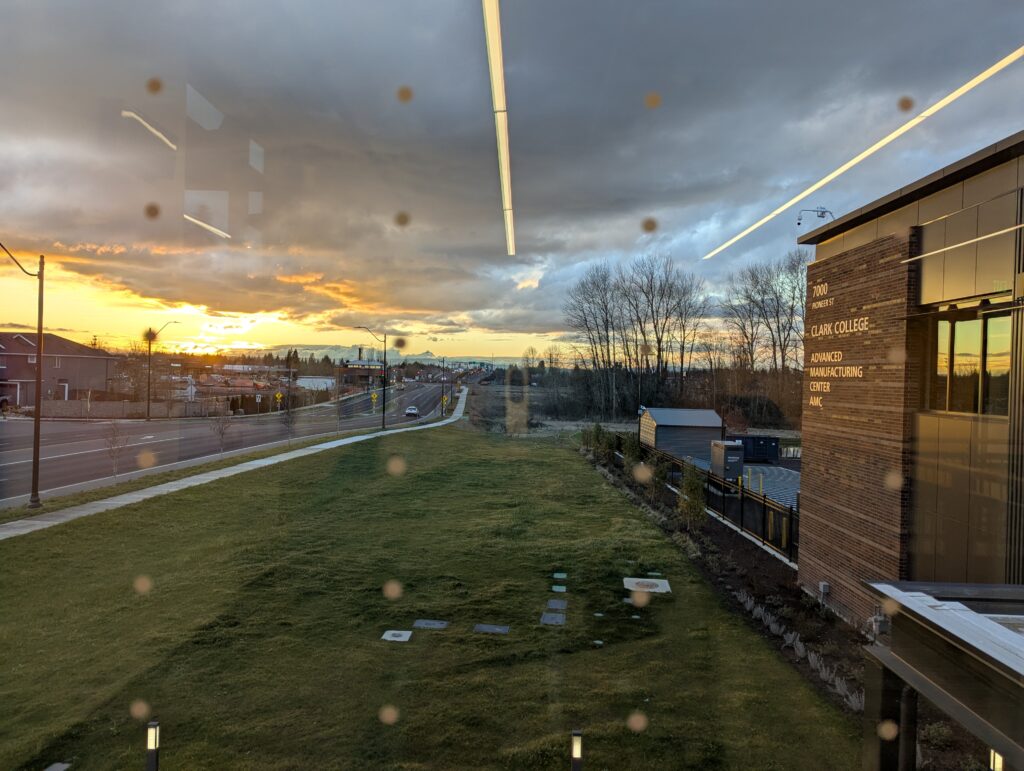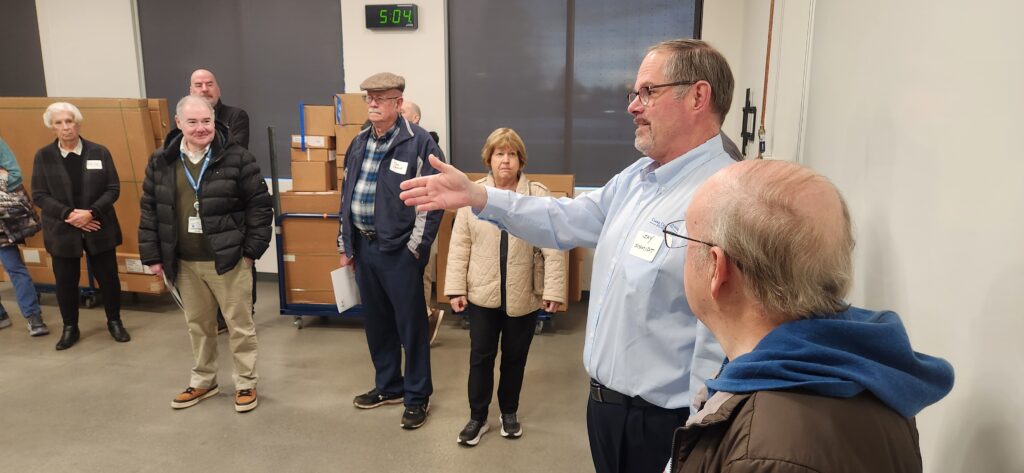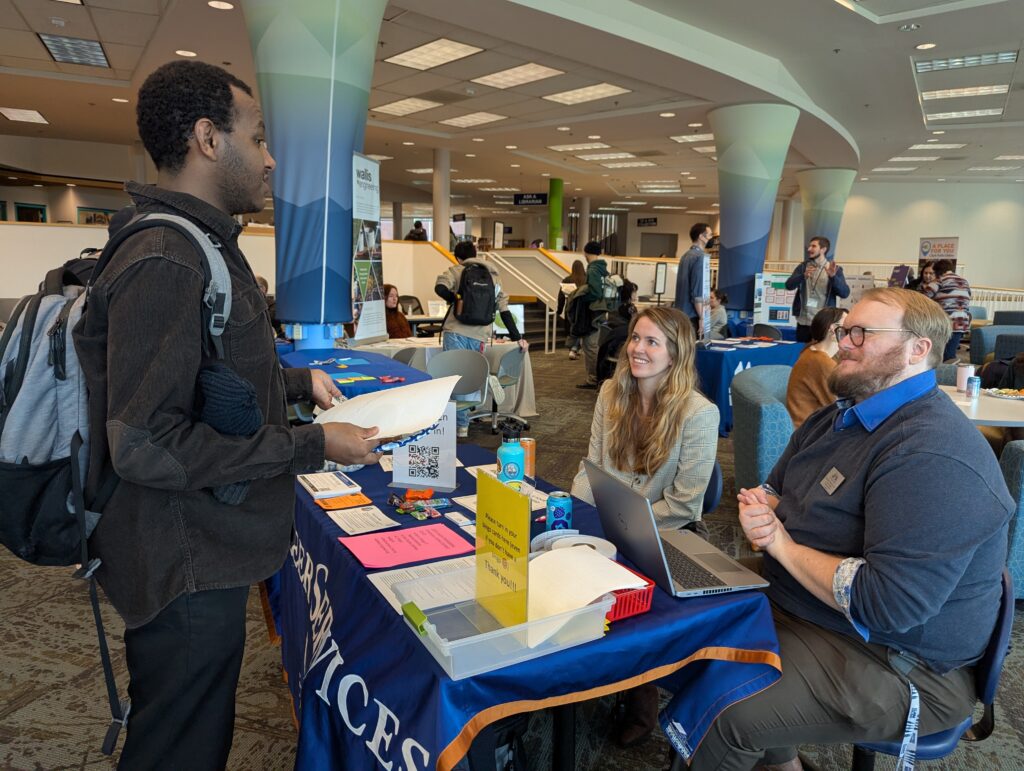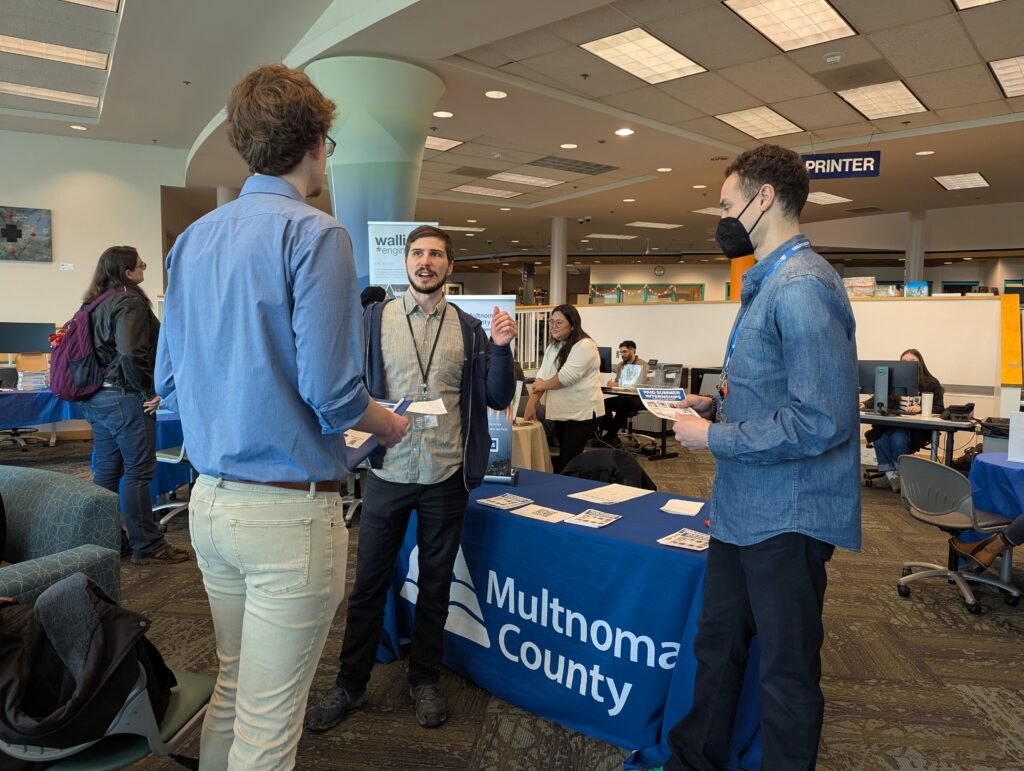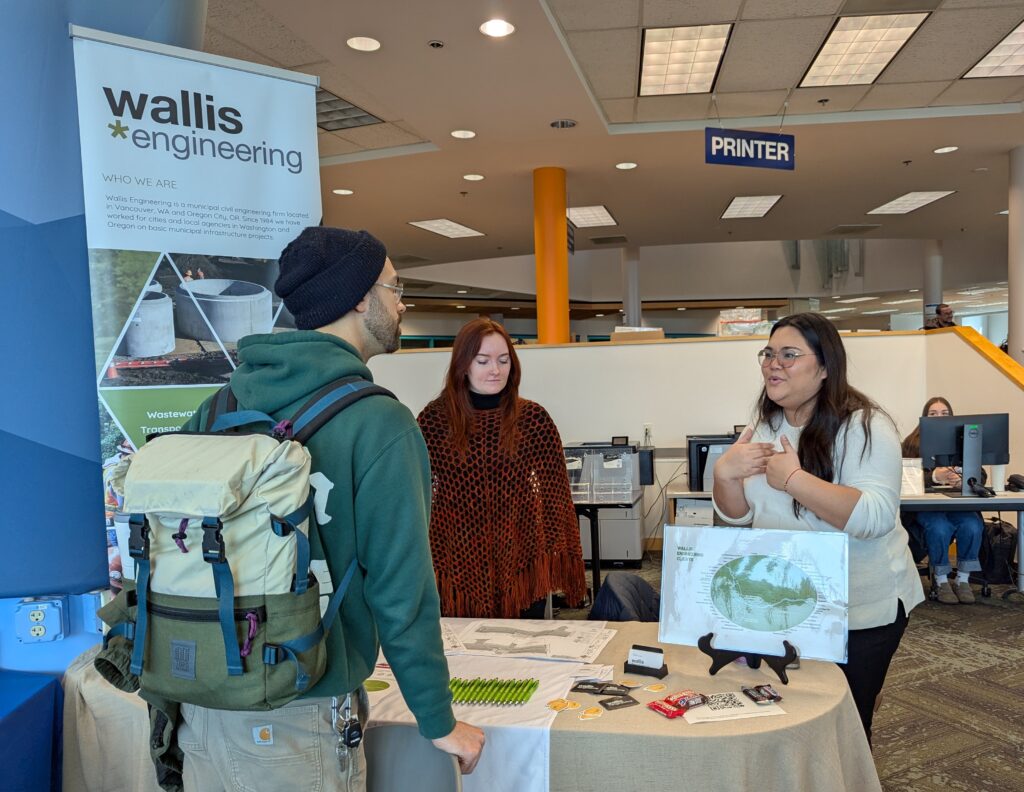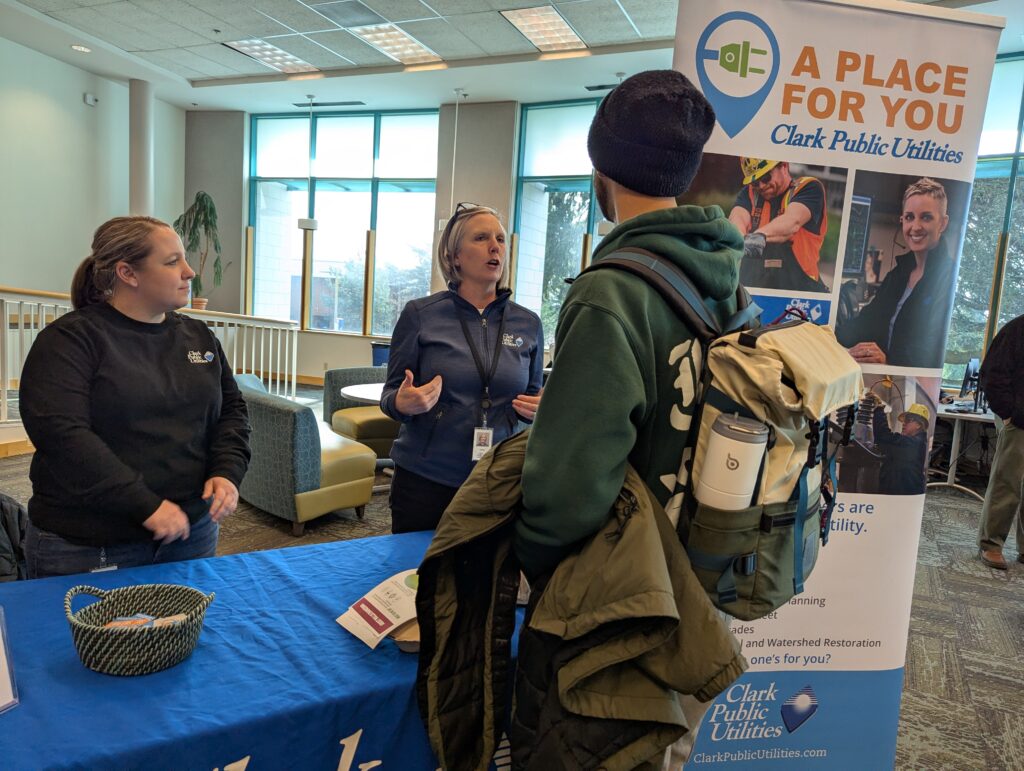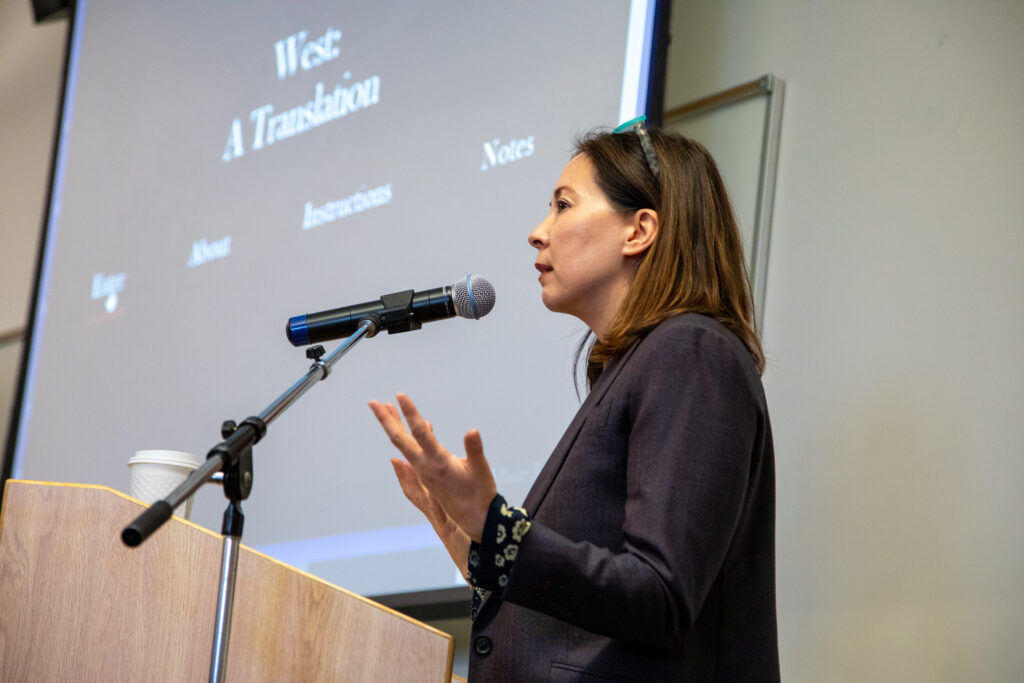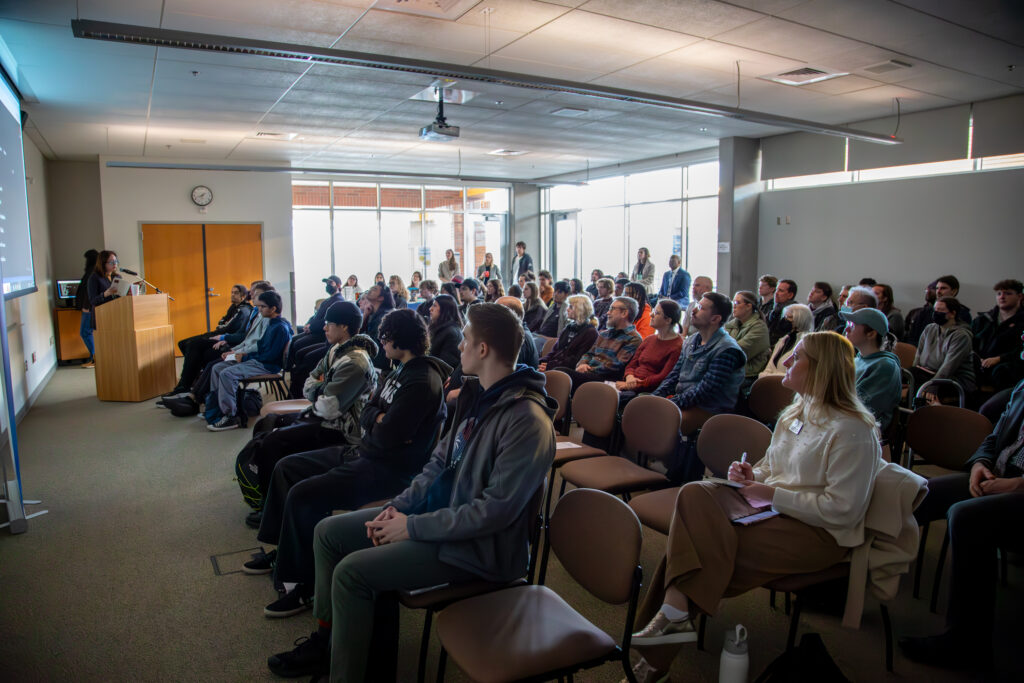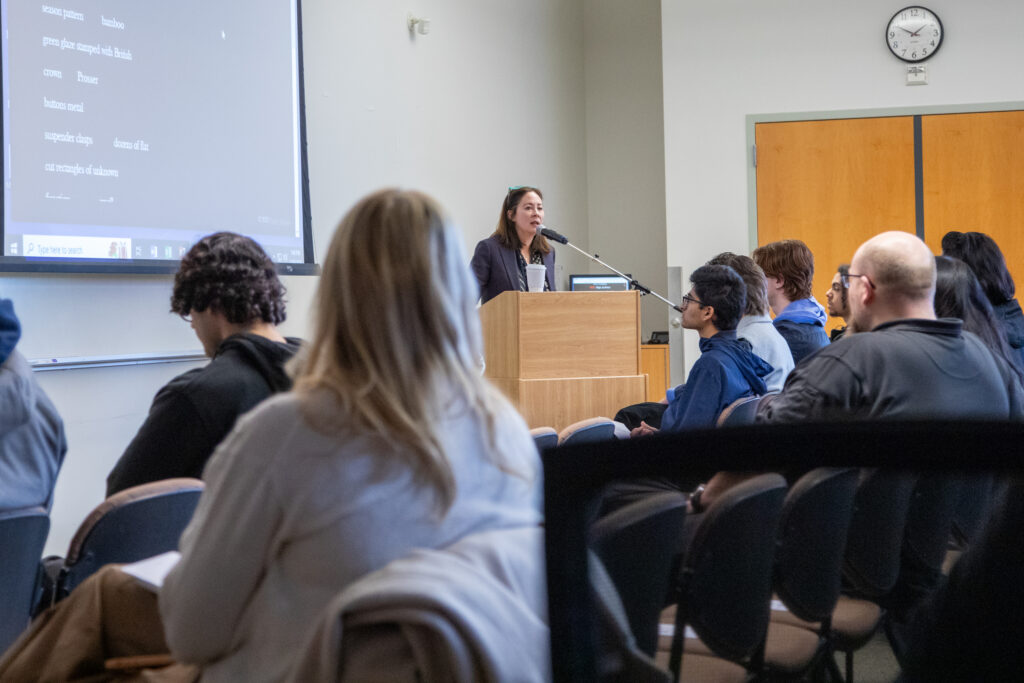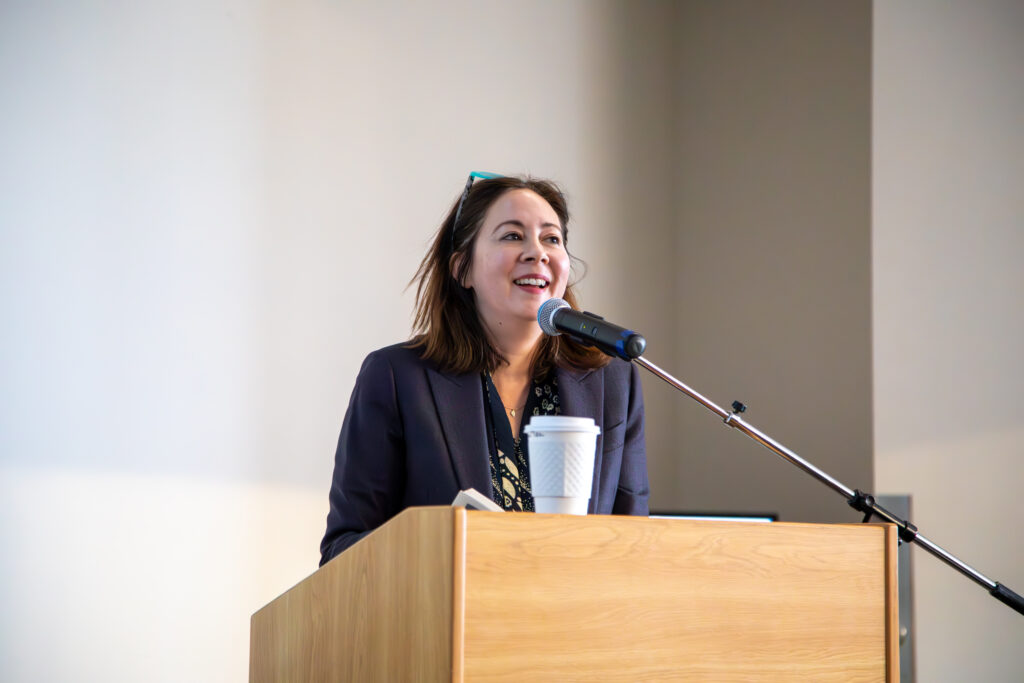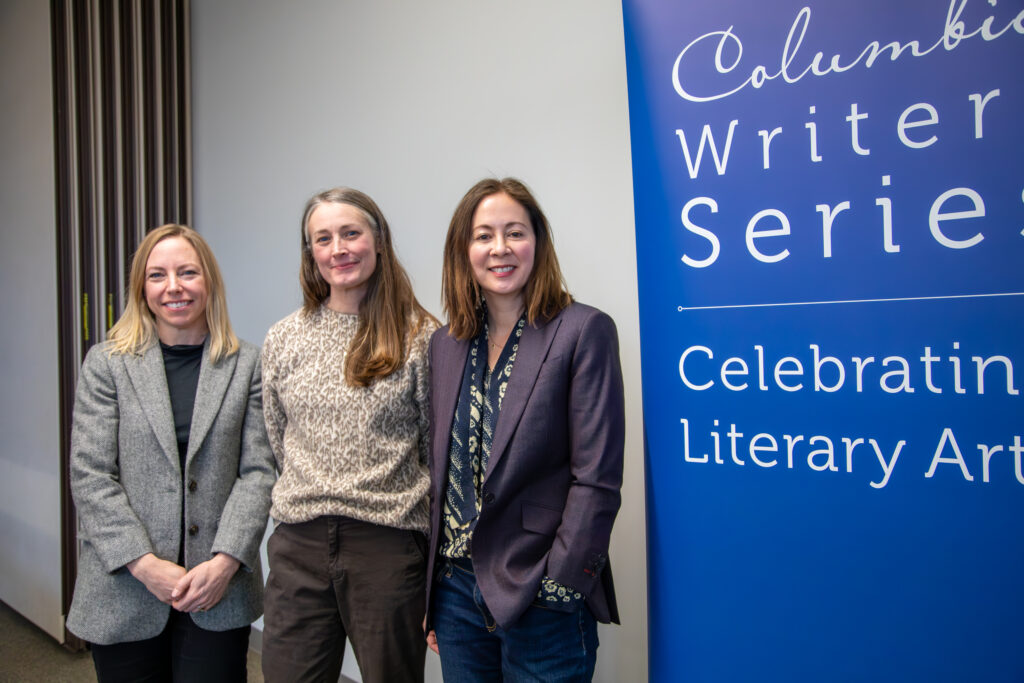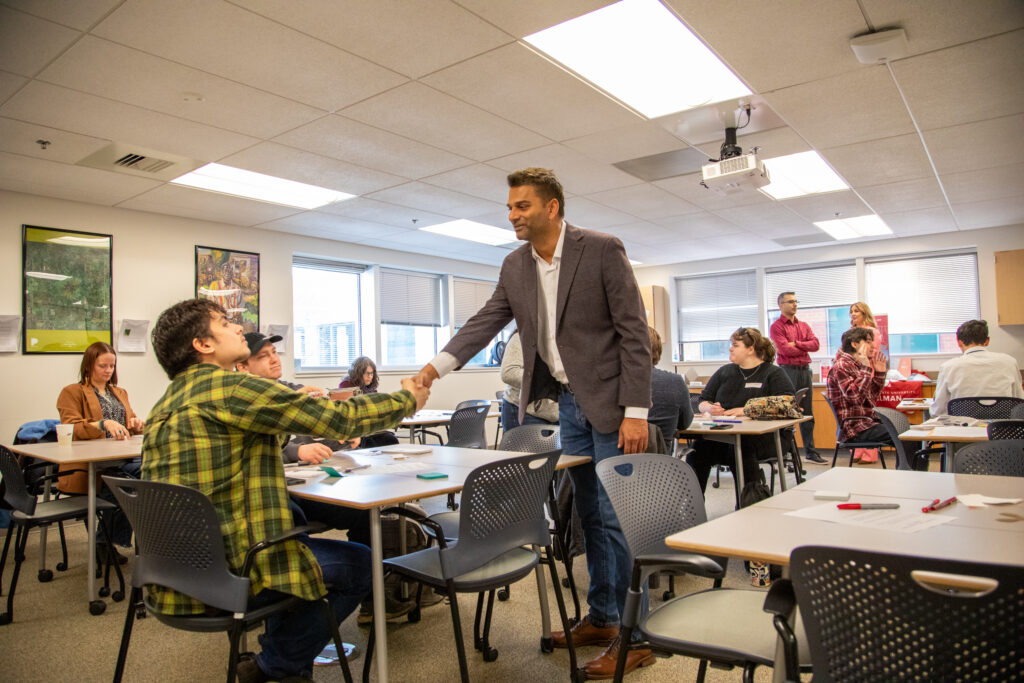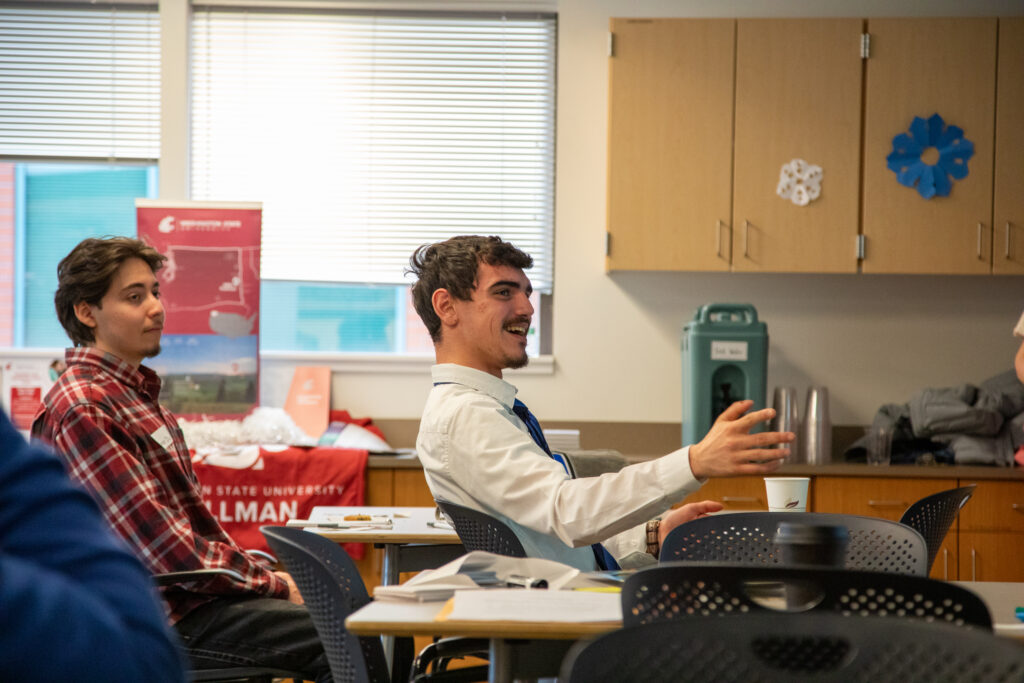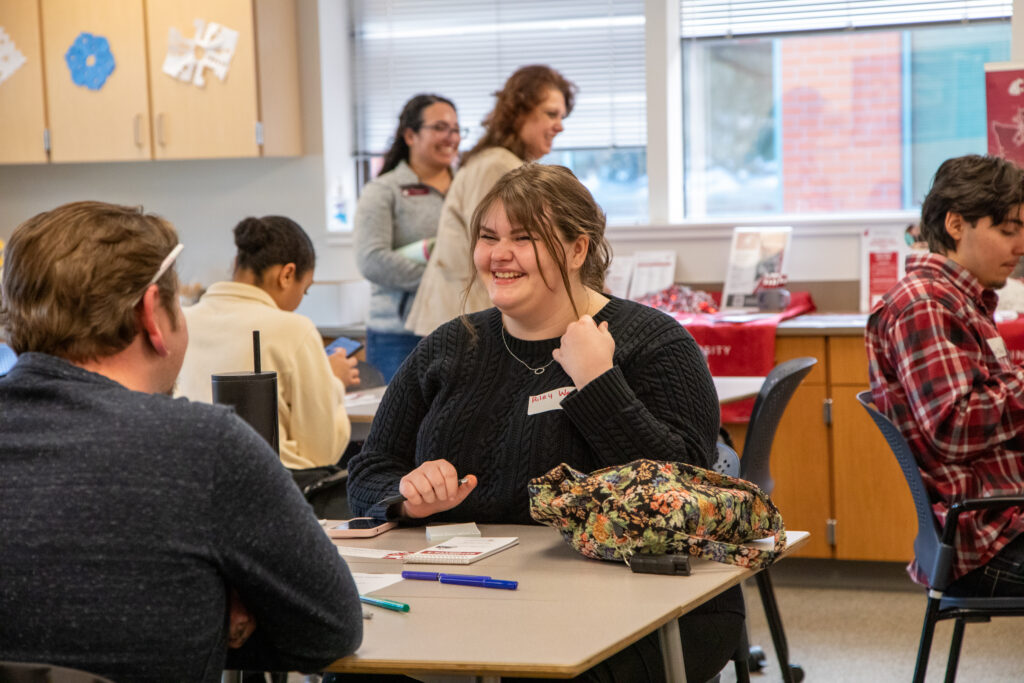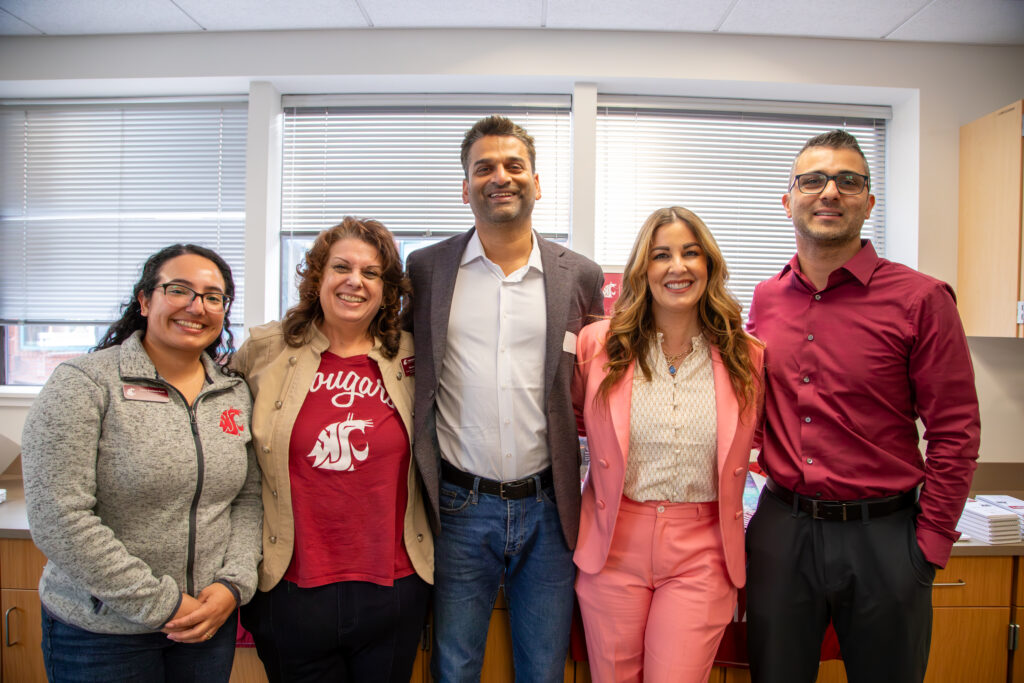Sixteen New Nurses Graduate
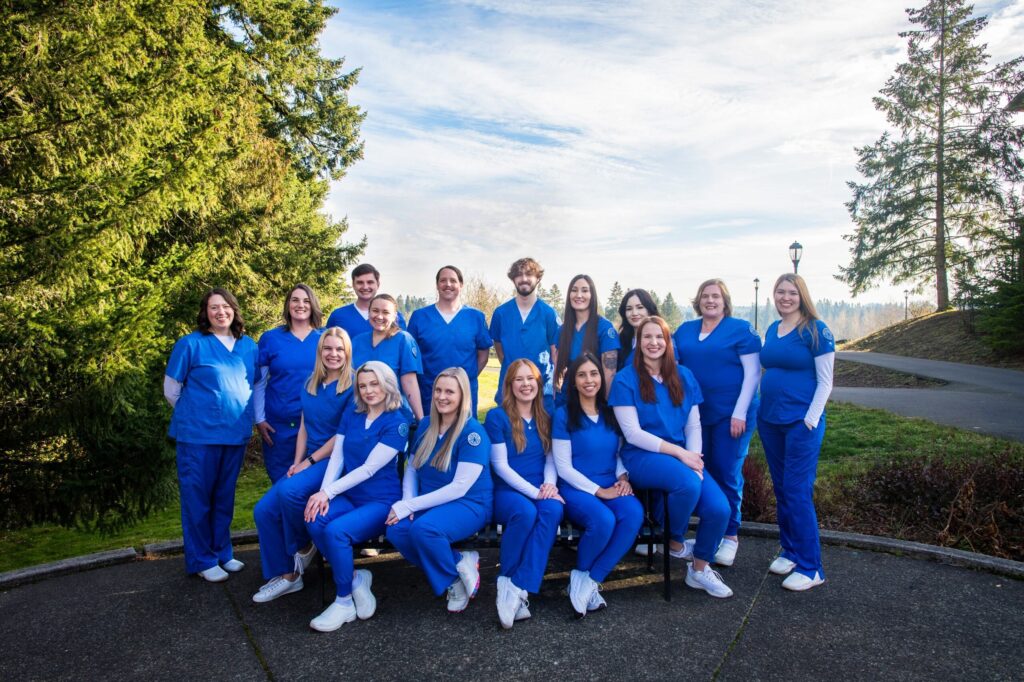
Sixteen nursing students from Clark College’s 149th nursing cohort gathered with their loved ones on March 19 in the Gaiser Student Center to celebrate their achievement at the traditional pinning ceremony. These students earned their Associate of Arts in Nursing DTA/MRP during winter term, a significant milestone in their journey to becoming healthcare professionals.
During the ceremony, Professor Nicholas Luisi presented the Clinical Excellence Award to one outstanding student. Before announcing the recipient, he told the graduates: “I am so proud of each of you. It’s been an honor to watch you grow in confidence.” He then announced that Kimberly Hoover was this year’s award recipient.
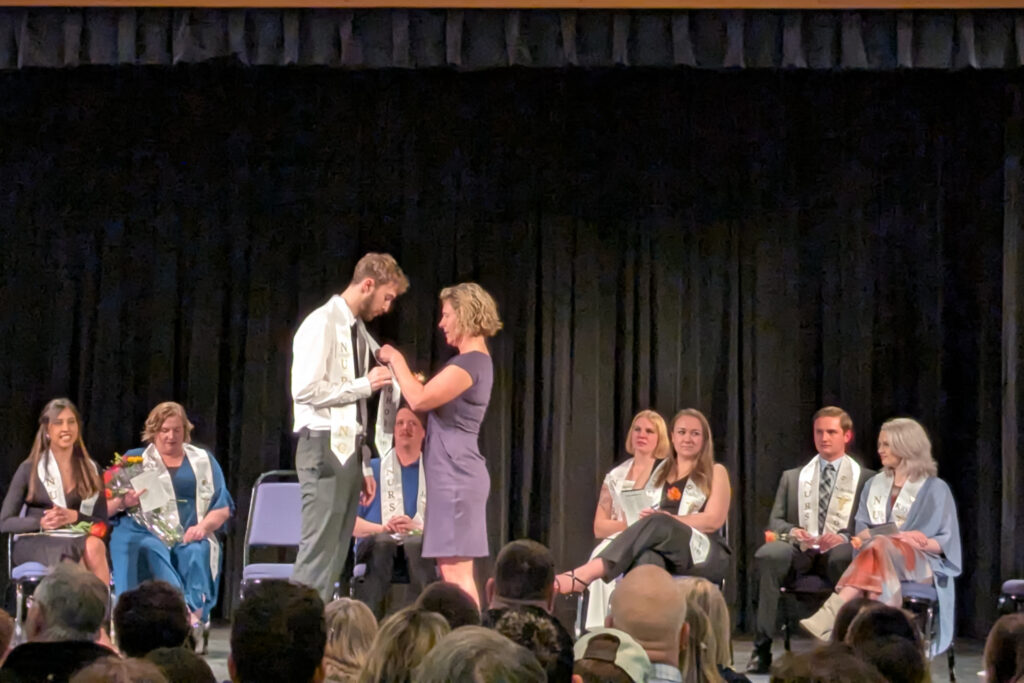
Faculty speaker Professor Halina Brandt-Zawadzki offered the new nurses advice including:
- You are never alone. Health care is teamwork.
- Ask questions. Stay curious.
- Prioritize self-care.
- You’ve been a support system for each other. As you enter your nursing career, find your support system.
- Success is relative. Celebrate it.
- Listen to your patients. Don’t forget that sometimes they are very scared.
- Remember your “WHY” – Remember why you worked so hard to become a nurse.
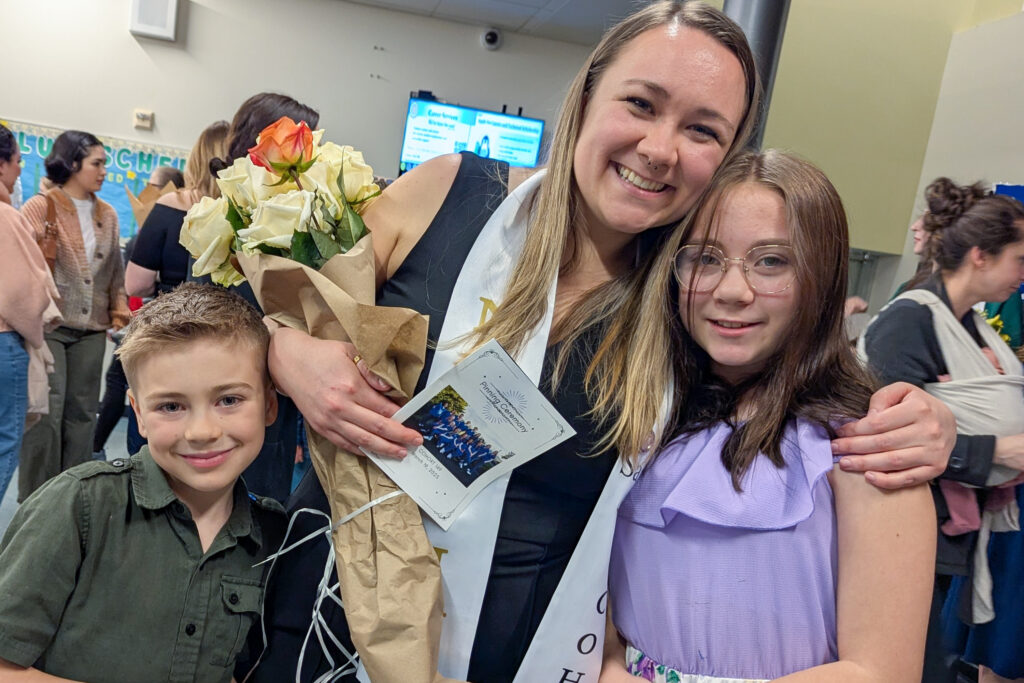
Class speakers Kristie Castle and Kim Hoover addressed their fellow students: “We are running on coffee, adrenaline, and sheer willpower. If we can handle nursing school, we can handle anything.”
Next, it was time for the pinning ceremony. In turn, each new nurse stood to be pinned by a special supporter who encouraged them over the finish line: spouses, partners, parents, siblings, children, and nursing professors crossed the stage to present a Clark College nursing pin to each new nurse.
After the new nurses had been pinned, they stood in unison and recited the nursing pledge — to uphold certain ethics and standards within their chosen profession.
The core principles of the nursing pledge are:
- Dedication to service: Nurses pledge to dedicate themselves to the nursing profession and to provide compassionate, skilled care to their patients.
- Ethical conduct: The pledge emphasizes adhering to the code of ethics of the nursing profession and maintaining the confidentiality of their patients.
- Professional integrity: Nurses are committed to maintaining and elevating the standards of the profession.
- Patient-centered care: The pledge emphasizes the importance of prioritizing the health and wellbeing of their patients.
- Collaboration and teamwork: Nurses pledge to collaborate will all members of the healthcare team.
Nursing graduates have already applied for licensure in the state in which they want to work. They have one final step to earn an “RN” after their name. They must pass a rigorous exam, the National Council Licensure Examination, or NCLEX-RN. It is a nationwide examination for the licensing of nurses in the U.S., Canada, and Australia.
Four nursing graduates on the stage have already taken the exam and passed.
Many of these nursing graduates shared their plans to continue their education and earn their Bachelor of Science degree in nursing, or BSN at Washington State University Vancouver, Oregon Health & Science University, or Boise State University.
Several already have secured nursing jobs at a variety of Vancouver and Portland hospitals.
After the ceremony, nurses, their families, and supporters headed for the reception to celebrate with their loved ones. Although they have earned their degree Winter term, many students will participate in Clark College Commencement ceremony this year on June 18.
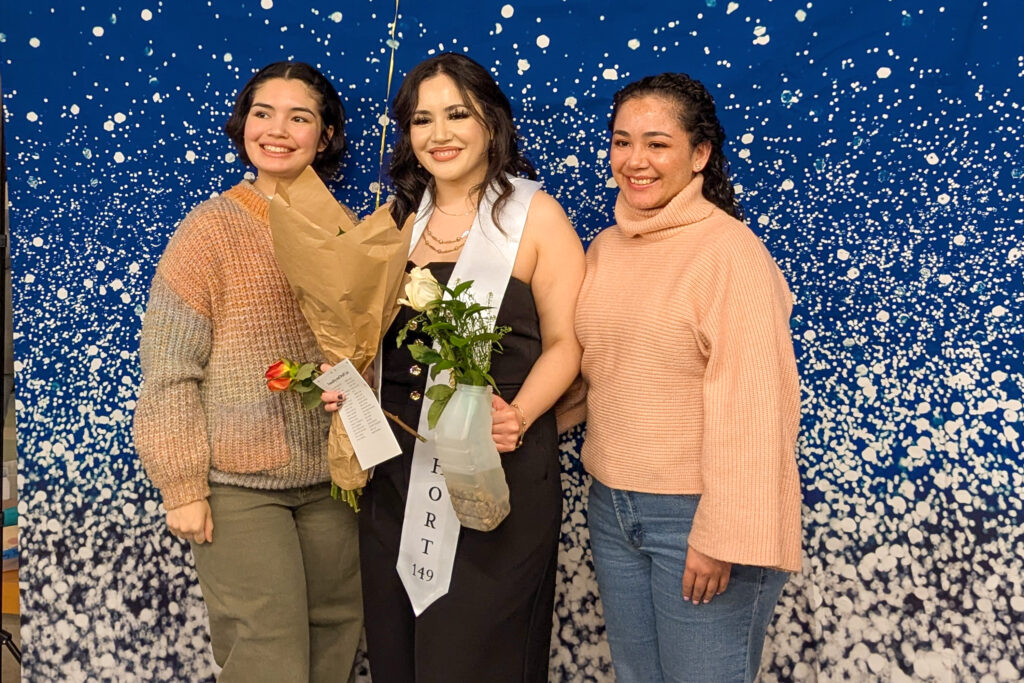
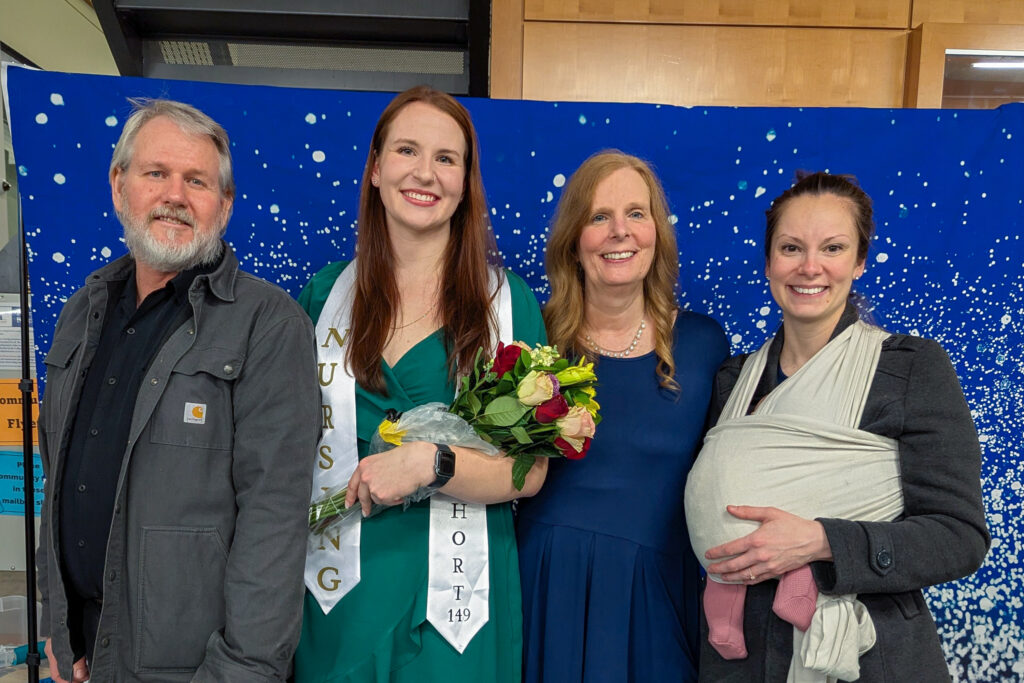
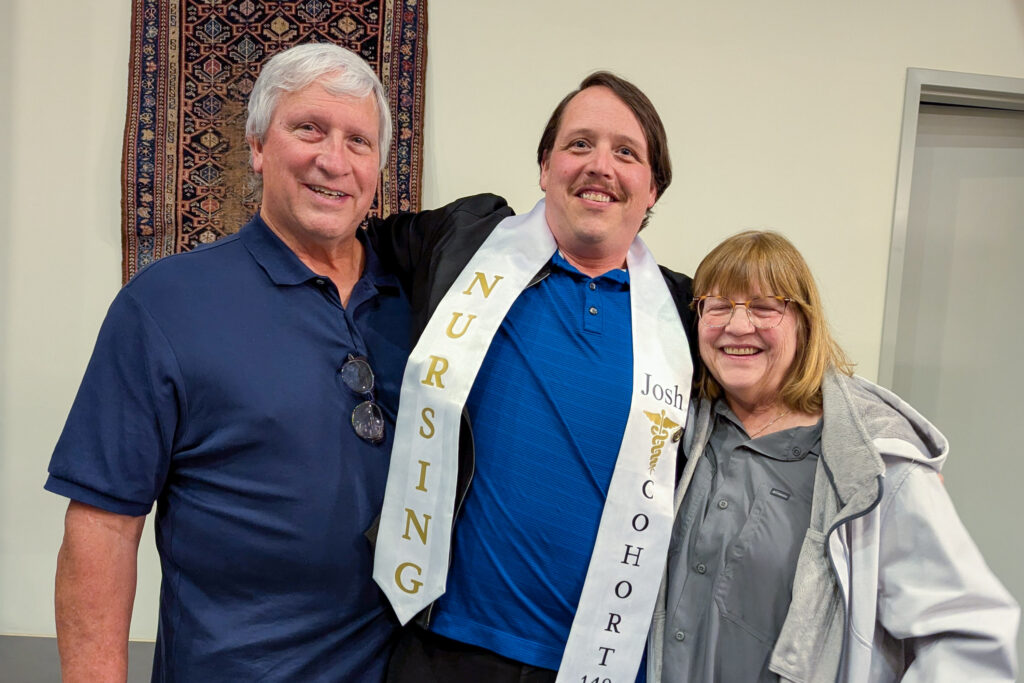
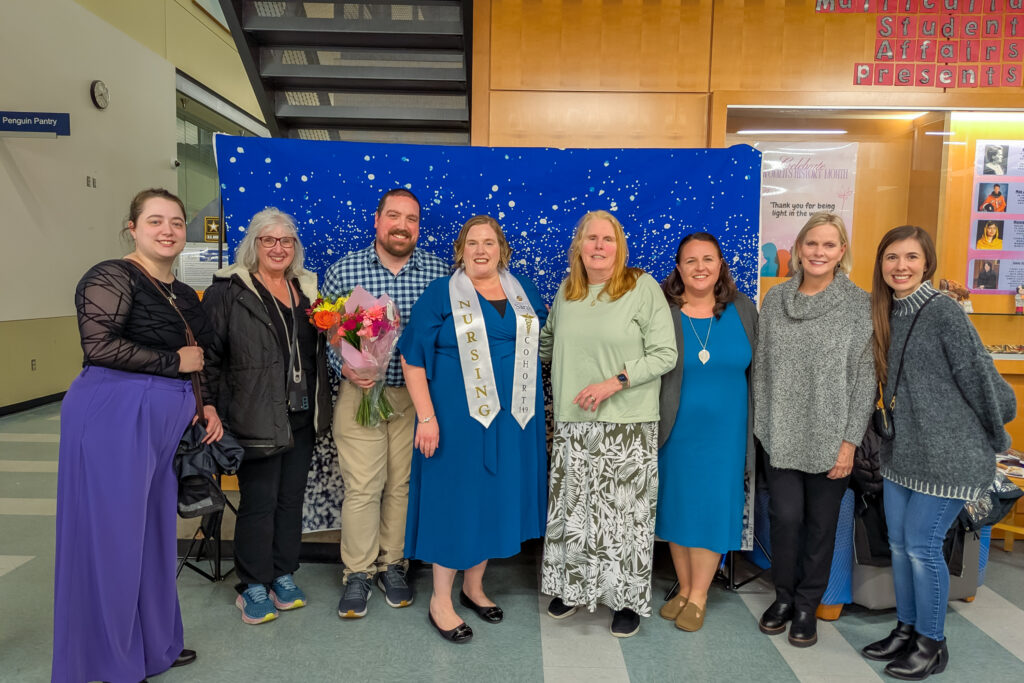
Congratulations to Clark’s 149th Nursing cohort
Maria Arellano was pinned by her parents.
Plans: work in Legacy Salmon Creek Medical Center in the intensive care unit.
Danielle Carter was pinned by her son.
Plans: pursue her BSN at Washington State University Vancouver.
Kristie Castle was pinned by her husband and daughter.
Plans: work at PeaceHealth Southwest Washington Medical Center.
Joshua Dowdy was pinned by his girlfriend, Jennifer.
Plans: pursue continuing education in wound care.
Kaylee Elizabeth was pinned by her mother.
Plans: work in labor and delivery or a neonatal intensive care unit (NICU).
Sarah Gish was pinned by her husband and her sister-in-law, a nurse in Tennessee.
Plans: pursue her BSN at Boise State University.
Kim Hoover was pinned by her husband and her oldest daughter.
Plans: work at Legacy Salmon Creek Medical Center’s residency program; will complete her BSN at WSU Vancouver.
Saharah Knittle was pinned by her husband.
Plans: work at Oregon Health & Sciences University.
Nukolai Kolobovnikov was pinned by Professor Halina Brandt-Zawadzki.
Plans: work in the ER at Legacy Good Samaritan in Portland.
Kayla Lindsey was pinned by her father.
Plans: pursue her BSN at OHSU and work as a critical care nurse in an ICU.
Desiree MacPherson was pinned by her daughter.
Plans: pursue her BSN at Boise State University.
Jenn McMillan was pinned by her daughter.
Plans: pursue her BSN at WSU Vancouver.
Bridgett Moody was pinned by her husband.
Plans: pursue her BSN at WSU Vancouver.
Josie Olson was pinned by her parents and her sister.
Plans: pursue her BSN at Boise State University.
Jamie Perez was pinned by her husband as her three young children looked on.
Plans: pursue her BSN in the fall and work in labor and delivery.
James Vanover was pinned by his mother, Julie.
Plans: work on the PeaceHealth Southwest Washington Medical Center surgical floor.
Nursing Pledge
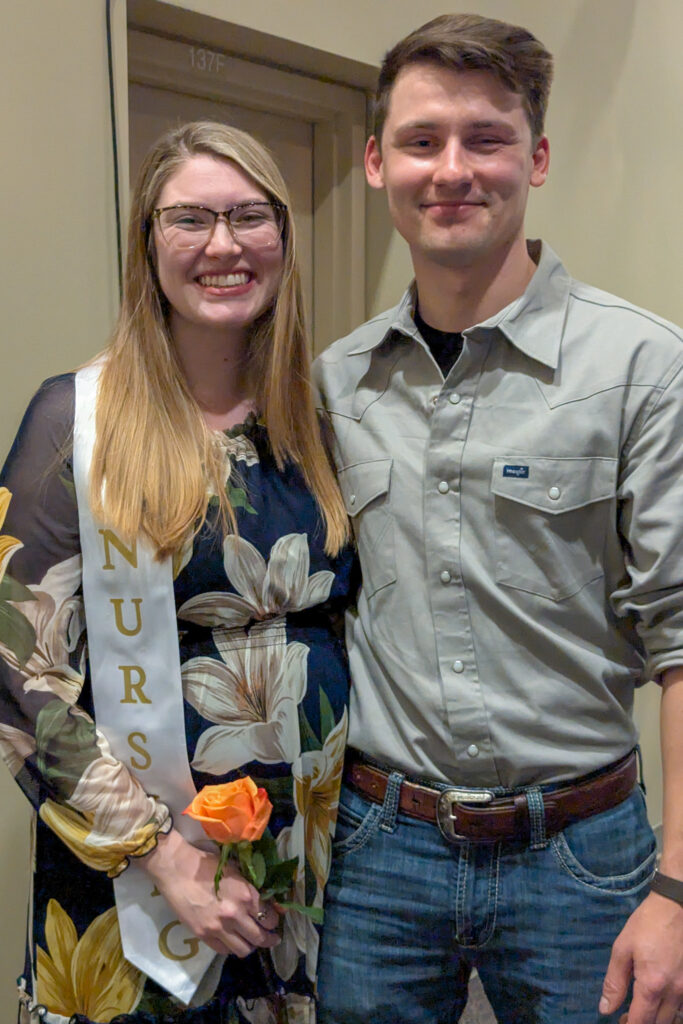
In full knowledge and understanding, I dedicate myself to the profession of nursing. I promise to provide compassionate care with all of the skill and understanding I possess, without regard to race, creed, color, politics, or social status. I will spare no effort to preserve quality of life, alleviate suffering, and promote health.
I will respect at all times the dignity and beliefs of those within my care. I hold in confidence all personal information entrusted to me, and refraining from any action, which may endanger life or death. I will endeavor to keep my professional knowledge and skill at the highest level, and work in collaboration with all members of the healthcare team. I will do my utmost to honor the International Code of Ethics applied to nursing and uphold the integrity of the nurse.
Learn more about Clark College’s nursing program here.
Photos: Clark College/Susan Parrish
